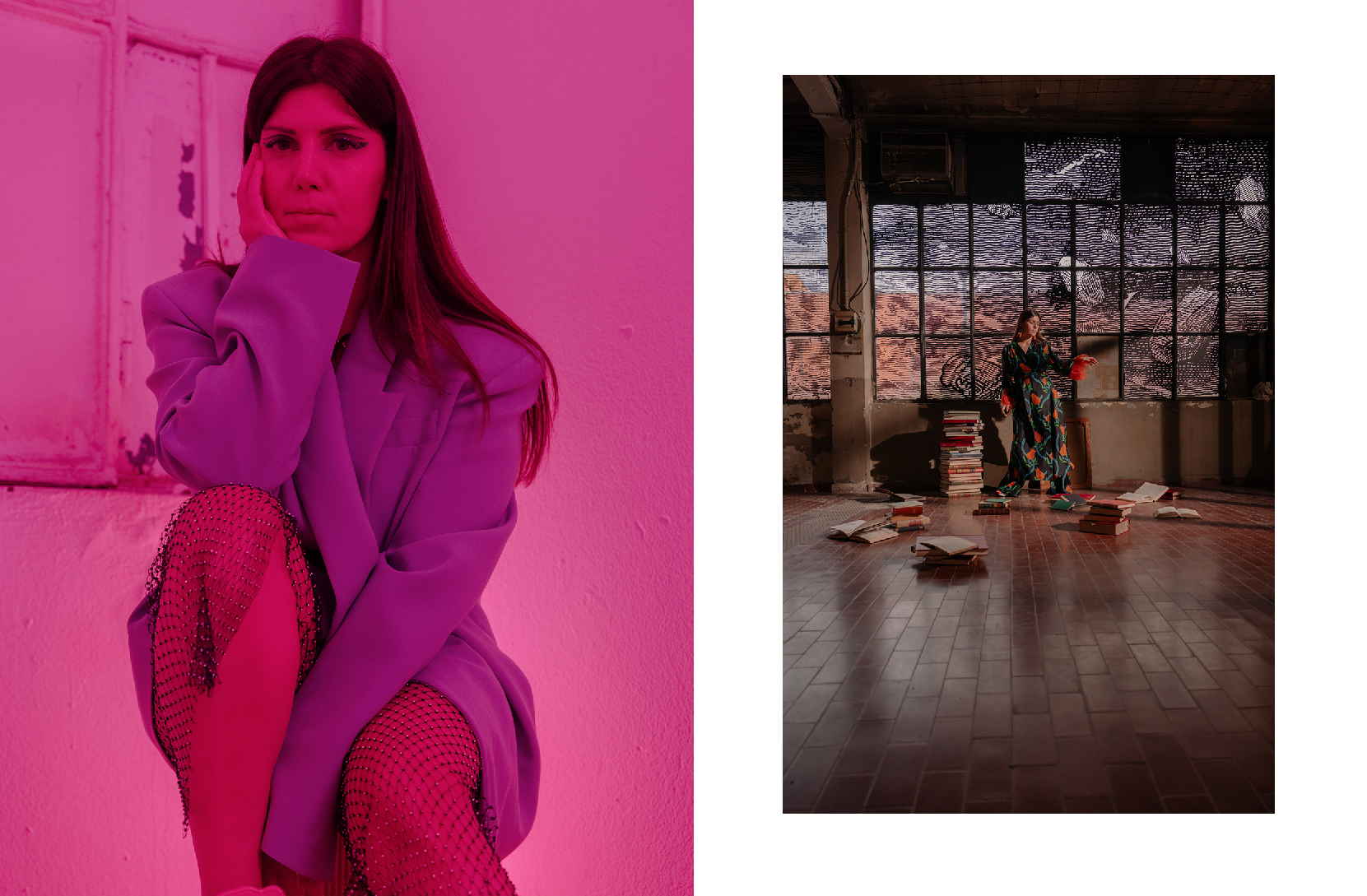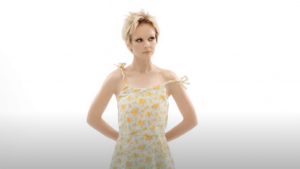Daniela is a hug.
A genuine hug, that says the truth, that makes you deal with yourself and “forces you” to love yourself a little bit more.
Every time I have the pleasure to talk with Daniela, I realize how much I’d love to have some of her words and sentences recorded somewhere so that I can listen to them every time I need it. It’s not really about nice words, it’s that kind of speech that puts you into the game, making you discover something new, or hidden, and say, “Is it possible that I can’t see this?”. Sometimes, these words are “punches in the face” of reality, but it’s all for good, and those who take part in her group therapy session know it so well.
Daniela is our March Cover Story, and with her we’ve discussed mental health, feeling far away, lonely, happy, and loving yourself, and how hard it is. And how, in this happy moment of your life, the question “Why not?” has become the most important one for her, just like her latest book states.
I, myself, have noted down Daniela’s words in a post-it, to read whenever I need it, they make me smile and feel happy. Daniela makes you understand the power of what we can’t see of ourselves, and she gives it back to you in the shape of strength.
Just like one of her famous hugs. That’s the power of Daniela.
You often talk about your therapeutic journey, you always advise people to give it a try, and you also offer your own group therapy sessions. When I see things like these, like all the information you give, I feel so grateful for the fact that people like you exist, people who provide information about such an important topic. Are there any changes you’d like to see in the way we approach it, also from the point of view of normalizing the act of speaking about it? Or changes that our State and/or society should make, in your opinion?
Well, you know, in a year where we also doubted the approval of financial aid for mental health care, differently from what happened with spas and the bonuses they gave for those, and for electric scooters, taps, and stuff like that, I think that should be seen as a priority regardless of the rest: it should be one of the health care issues of a country, especially if it’s a country that, to make it simple, has witnessed its dear ones in their coffins being taken away by tanks. It might be true that Italians, maybe because of our history or biological features, have a tendency to get up at once and play it cool, but I don’t think we’ll be able to easily forget these past two years and the traces they’ve left, I think this pandemic sooner or later will present the bill to all that’s happened to our psyche, now or then. So, I’d like to find a way to slap a band-aid on this emergency and also be a little bit forward-thinking because if we think about today’s fifteen/sixteen-year-olds who’ve been stuck in their houses for two years, and in two years will be university students or first-time workers, we realize that we need to take care of the balance of a whole country, and in the exact way we do it with face masks, vaccines, Covid tests, we need to do it with the minds of 58 million people because we’ve been through a lot.
Someone compared this with the PTSD of the post-war years, suffered by the Vietnam war veterans; I believe we are still very much into this reality, to a point that we just can’t understand its consequences, and maybe we can’t even recognize the trauma, the “war,” right now because we keep telling ourselves, “We’re fine anyways,” “People are not dying anymore like they used to,” “Intensive care units are less crowded.” However, there’s this invisible illness that stays, and it’s the one that affects people’s mental health.
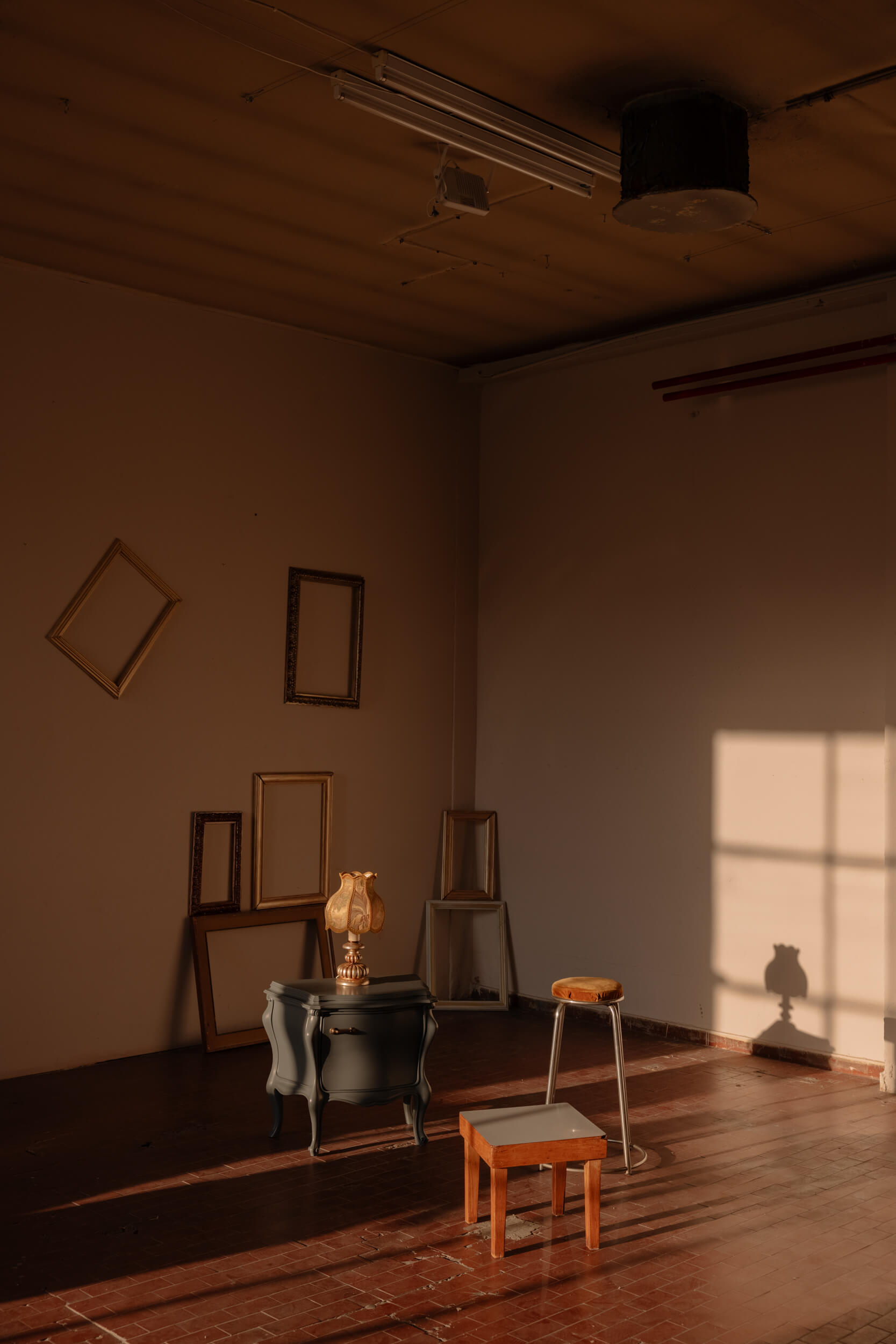
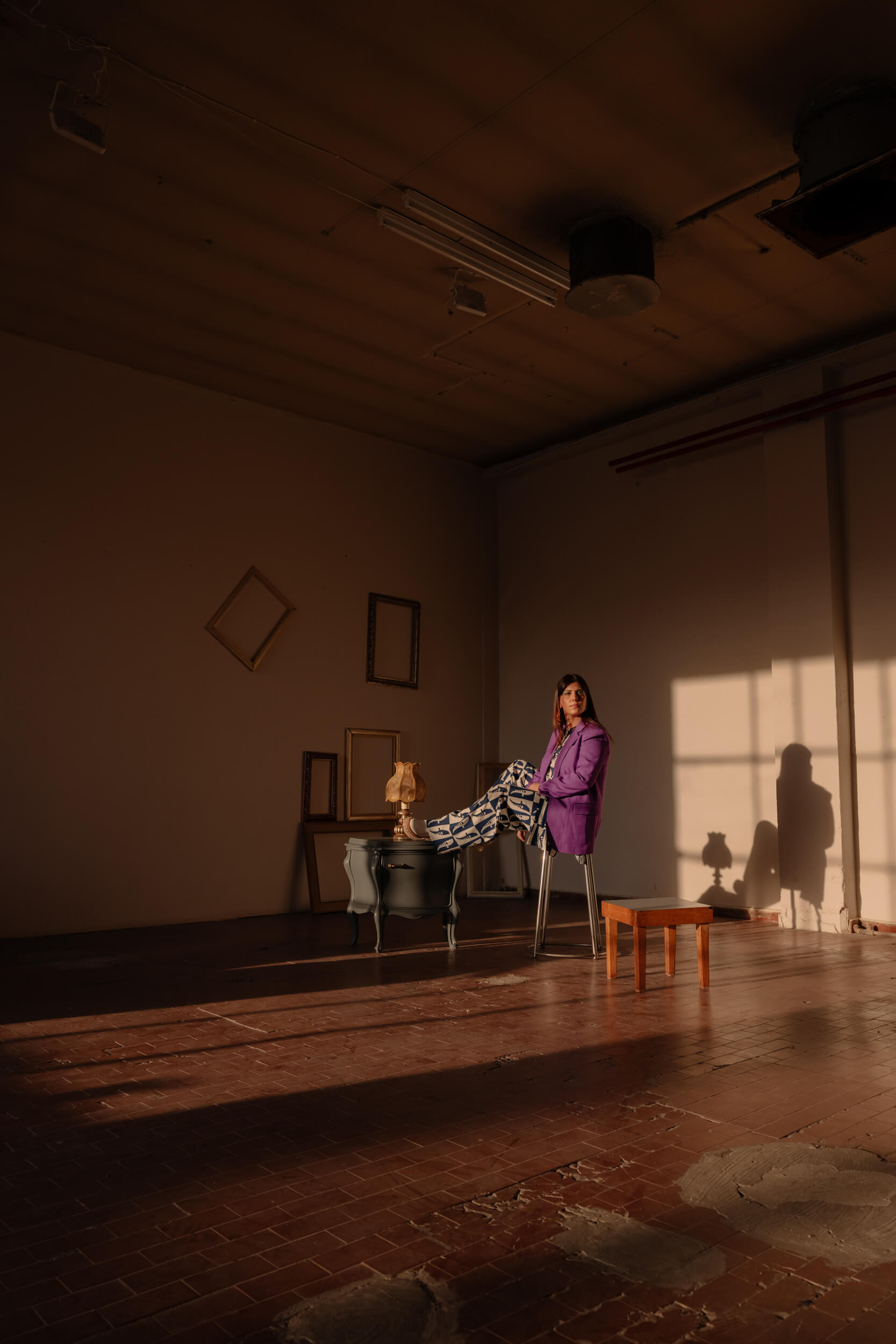
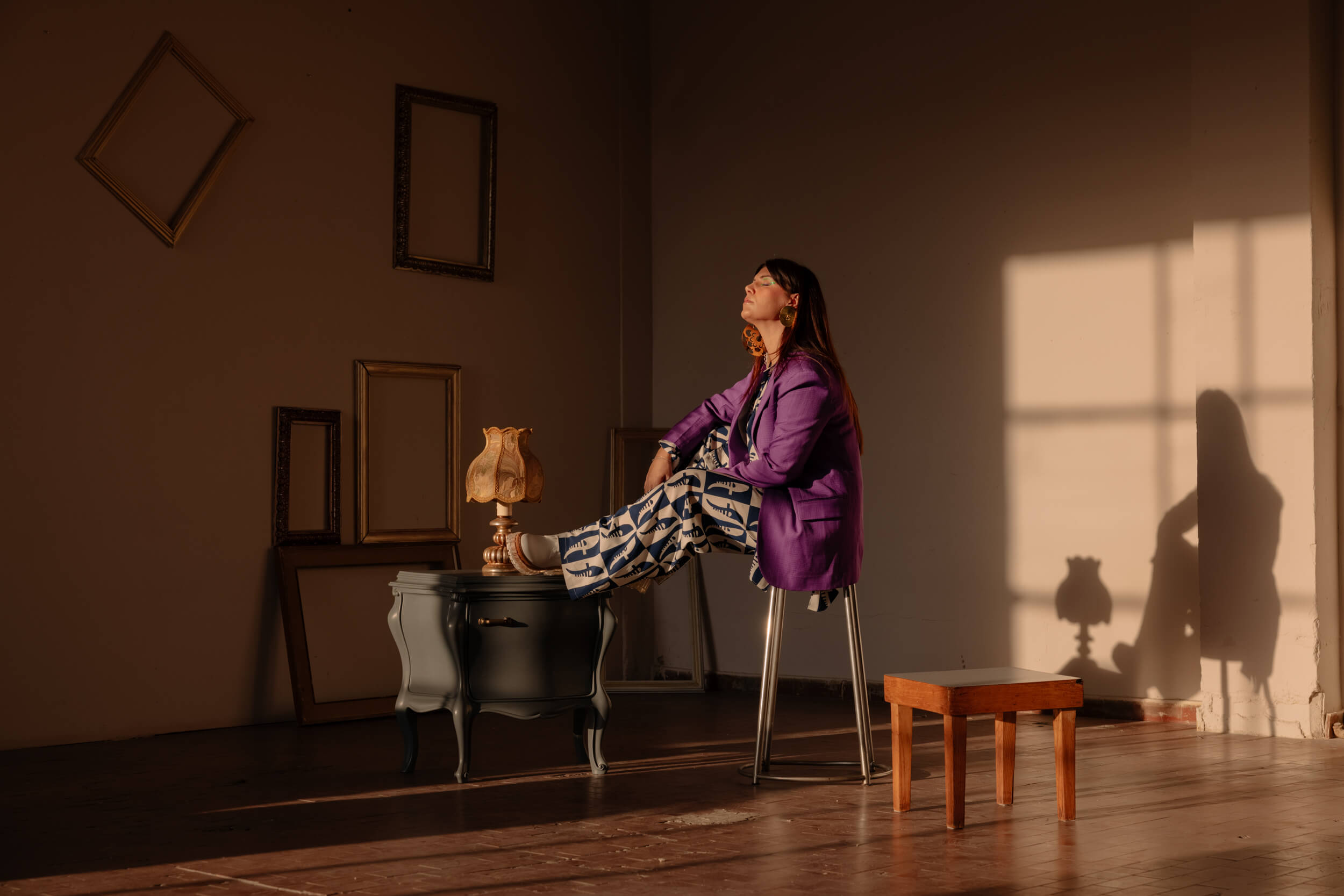
The first thing I’d like to happen is that people recognize this as a problem that needs to be solved or an issue that those who are in charge of an entire country need to consider.
The second thing I dream of is clarity and normalization. In Italy, there’s still this huge stigma according to which if you go to therapy, you’re crazy or you’ve got issues. I get so many messages from boys and girls, but also from older people, telling me, “I’ve never needed it, and now I’d like to try it, but what do I tell them? What do I do?”. We talk about prevention a lot and spread information about a lot of things, for example, we get our blood tested for diabetes even if we have no symptoms; whereas, when it comes to mental health if the pathological status of the issue is not full-blown, no one goes to therapy, but we should all learn to handle the symptoms, the means for our well-being, understand the way we work inside our bodies other than outside of them, so I’d love to achieve a smoother approach to that field, so that should there be an emergency, or a necessity, no one would really feel far away from an actual solution, or an effective therapy process.
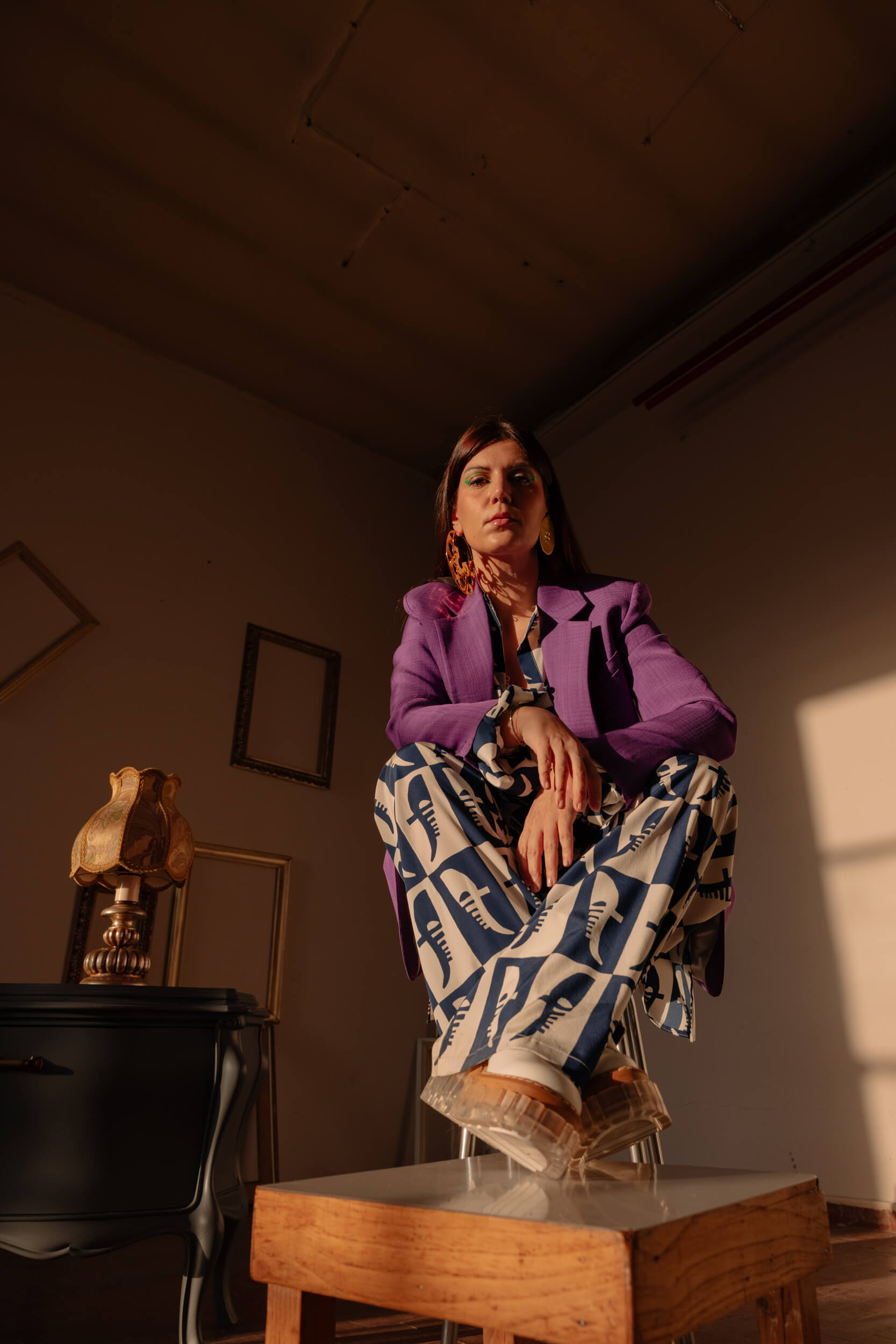
“…we should all learn to handle the symptoms, the means for our well-being, understand the way we work inside our bodies other than outside of them.”
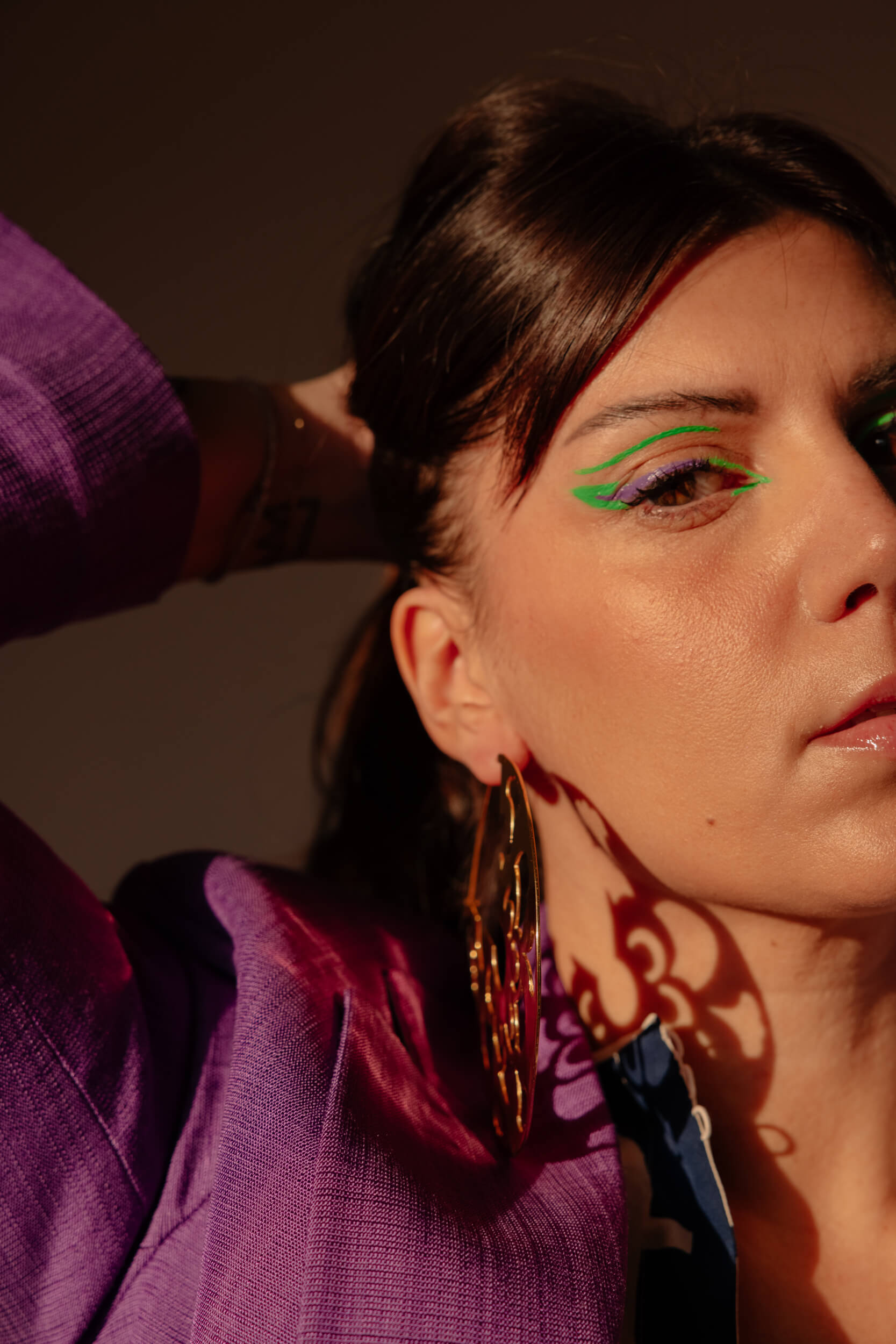
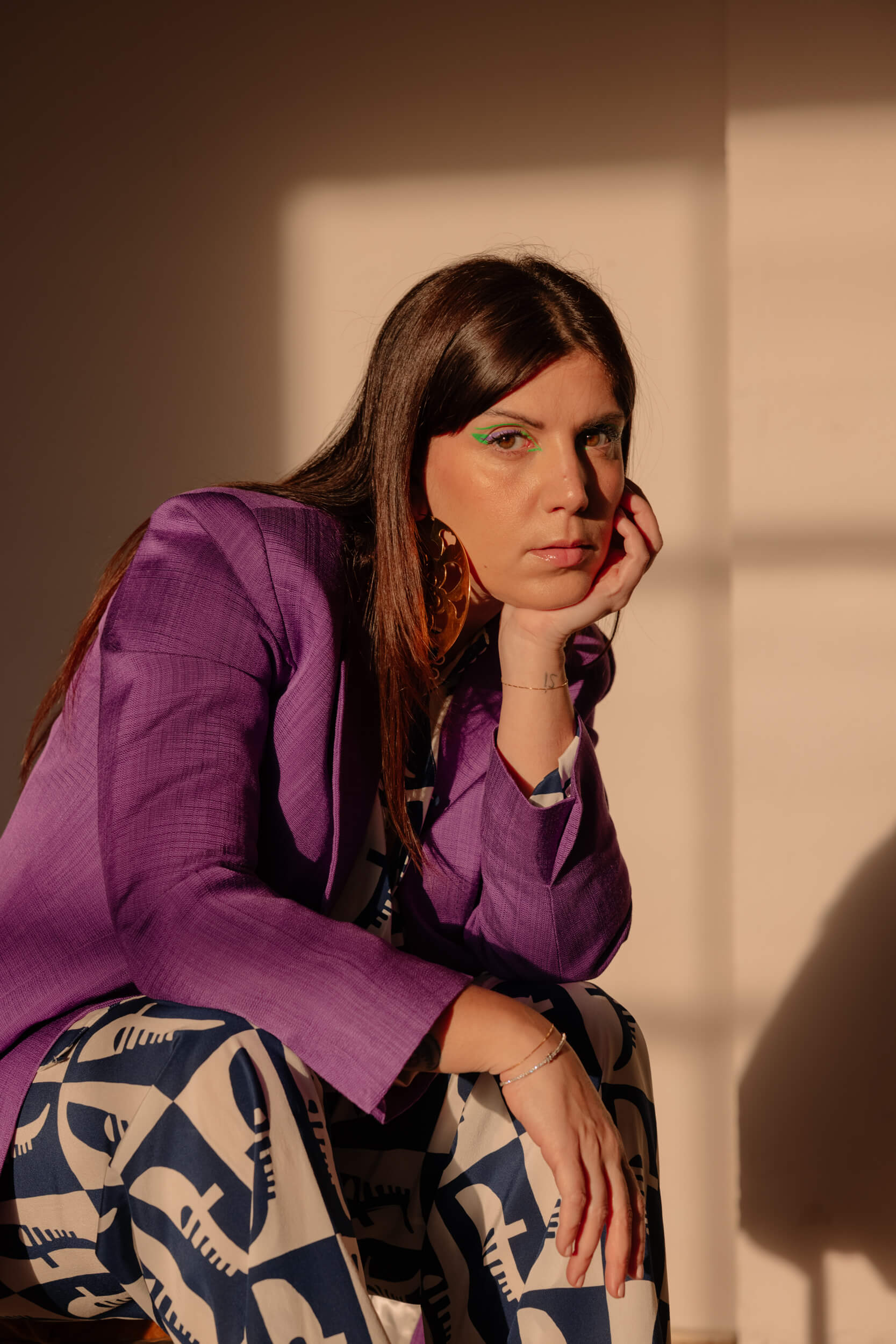
Absolutely. I’ve been going to therapy for about 12 years and, initially, I feared people’s judgment because I was “very young” when I started and I almost felt ashamed to tell it to my friends; however, my parents thought it was no big deal and they’ve always talked to me about it as a natural thing to do, and they taught me that there’s nothing to be afraid of. Anyway, I’ve always noticed, even as I grew up, that the “ordinary” isn’t a value associated with the treatment or prevention of mental health issues; so, I wonder: if you have the flu and take some paracetamol to get rid of it, isn’t it the same as having a panic attack (which is a “serious disease,” even worse than the flu) and take some time to go see a therapist, who could maybe even prescribe medication? Speaking of which, taking medicine is also seen as something to be kind of ashamed of…
Exactly, and we have this tendency of changing the subject and underestimating some things, we say to ourselves, “It’ll go away,” and that’s where problems come from because people then expect that a problem, a need, an inconvenience, even the smallest one and even before getting to the panic attack situation, goes away on its own, and if it doesn’t, it’s their fault, it means they’re not able to make it go away. This is a terrible message to send people because things don’t work out on their own. I could have the flu and decide not to go out, to have some rest, I could stay in bed for two days and the flu could go away on its own, but if it doesn’t, I’d take paracetamol, and it’s all about that, it’s all about understanding the entity of your needs and find a solution. Whereas, when it comes to mental health, everyone’s like, “Have a good laugh!” and there’s nothing worse than telling someone suffering from depression to “have a good laugh,” there’s nothing worse than telling someone who’s scared that “there’s nothing to be scared of” because not only won’t they be able to recognize the inconvenience, but they won’t even be able to recognize their own feelings and state of mind towards that inconvenience, it’s like delegitimizing someone when feeling whatever they’re feeling.
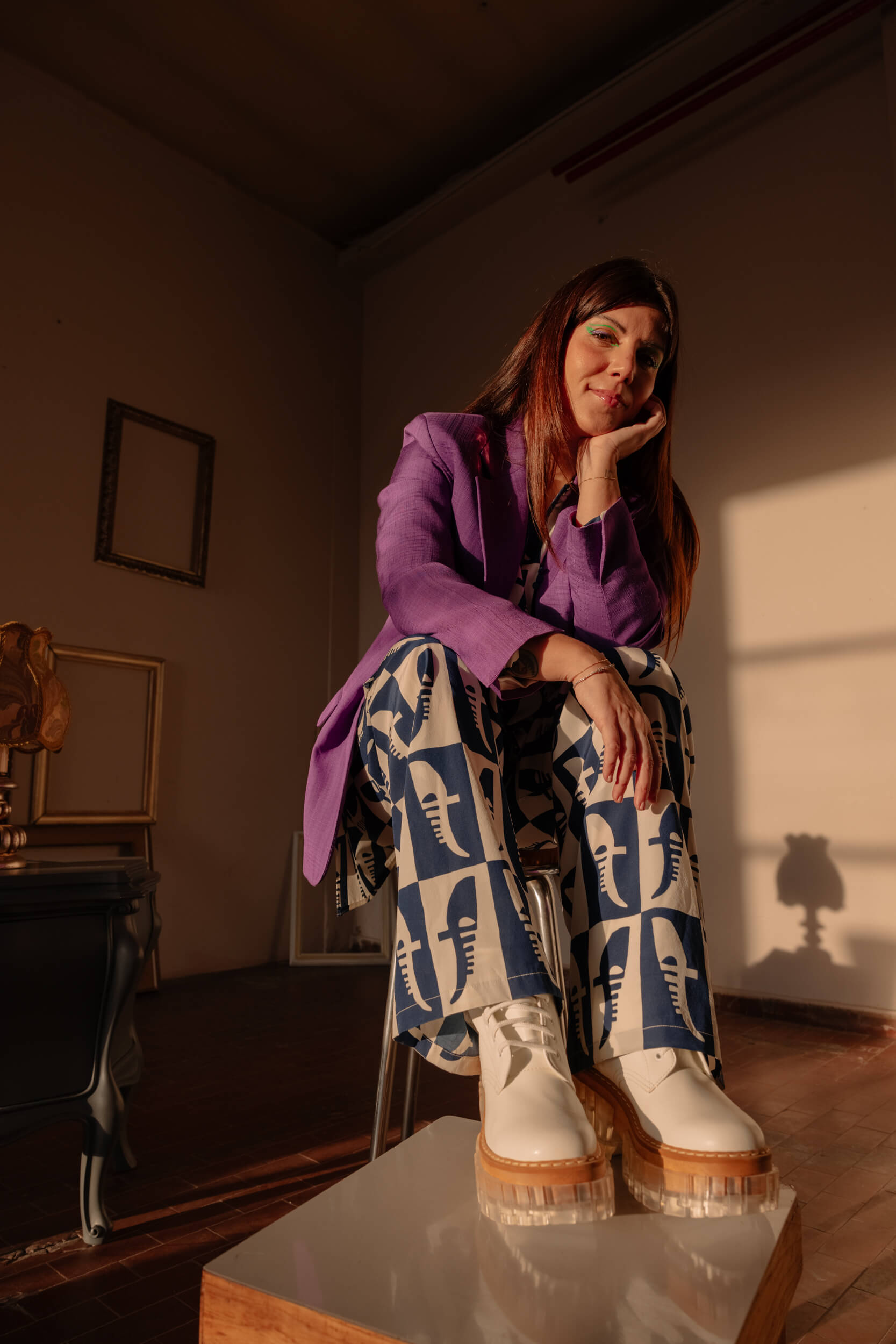
“There’s nothing worse than telling someone suffering from depression to ‘have a good laugh,’ […] because not only won’t they be able to recognize the inconvenience, but they won’t even be able to recognize their own feelings.”
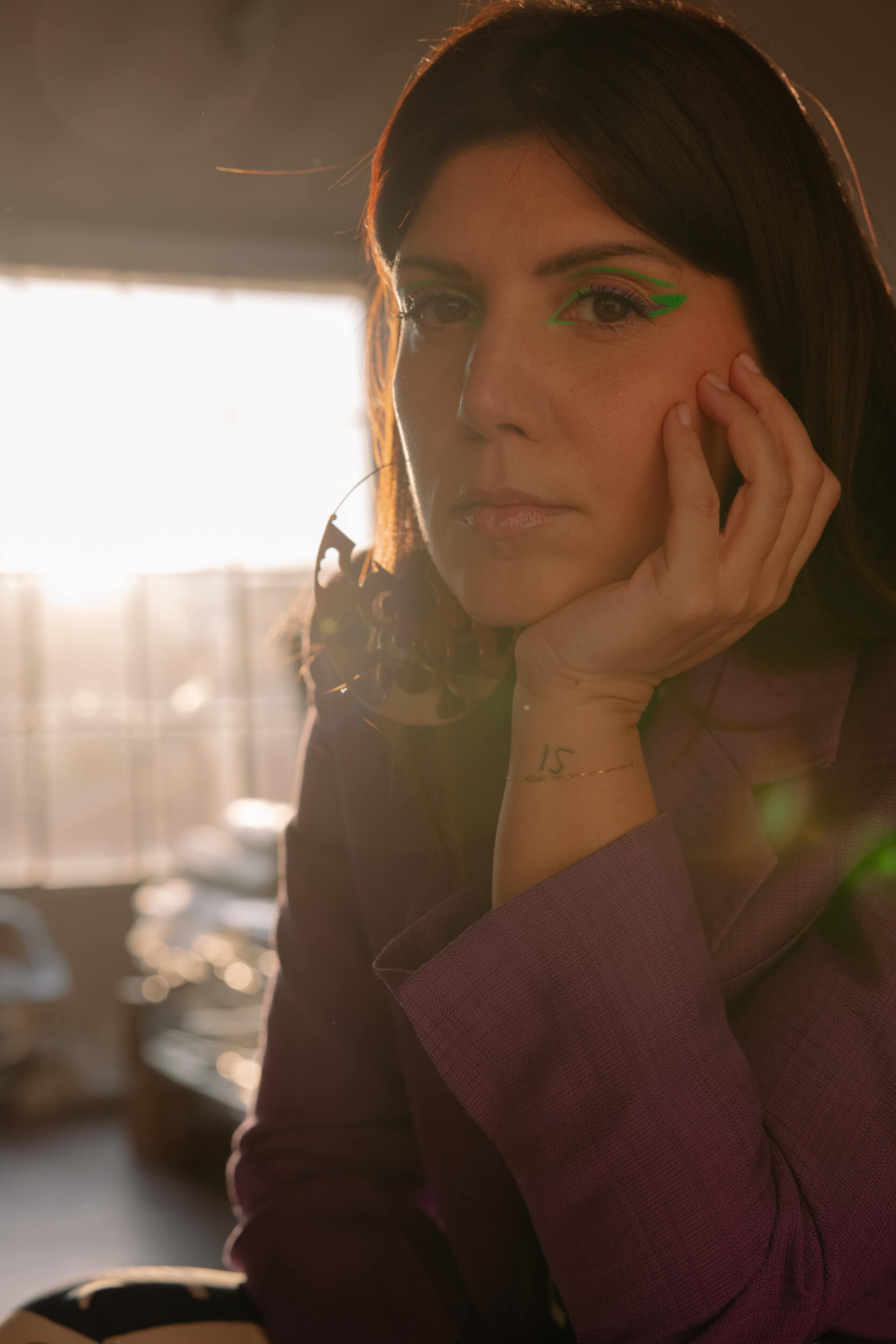
Yes, unfortunately, it’s a very rooted attitude. I’ve been witnessing entire generations behave like this. Have you ever felt judged at the beginning, when you decided to start going to therapy?
Look, I had my first panic attack when I was 15. It would happen to me at school and it was very bad, and if I think about it now, I caress myself, I hug myself because no 15-year-old would be able to handle that kind of thing. In fact, that time I got really scared and I would have very closely spaced panic attacks, I got to a point where I had one every week. Something very bad would happen to me, my hands, feet, and mouth would get numb, I couldn’t speak and I couldn’t move, I would cry very hard and could hardly breathe, I would really think I was dying, I would think: “now my heart will stop beating.” Panic attacks can be very scary. The first time I told it to my family, who had a completely opposite attitude, where no one had ever gone to therapy, no one really knew how it worked, the answer I got was: “You’re not going, you’re not crazy!”.
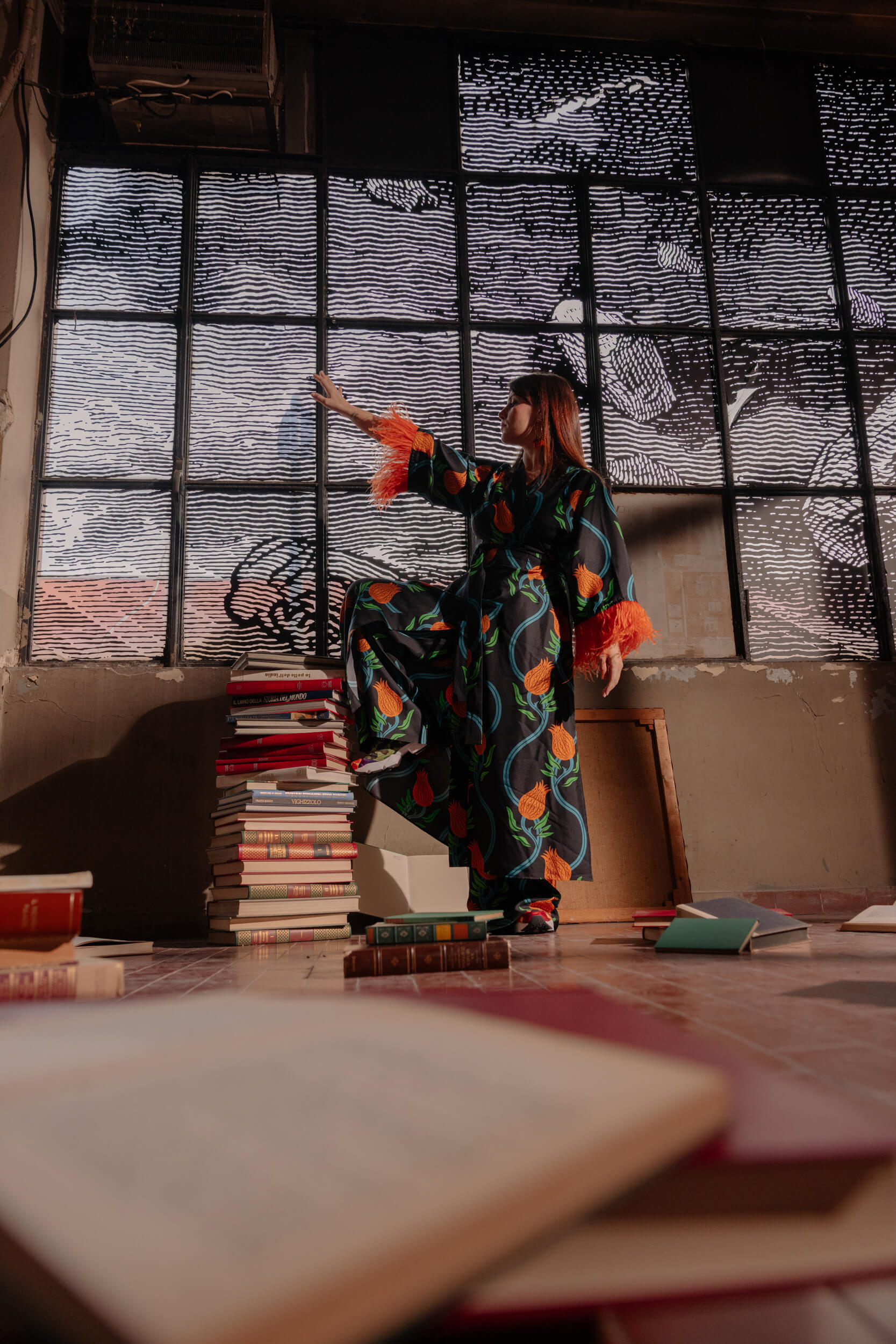
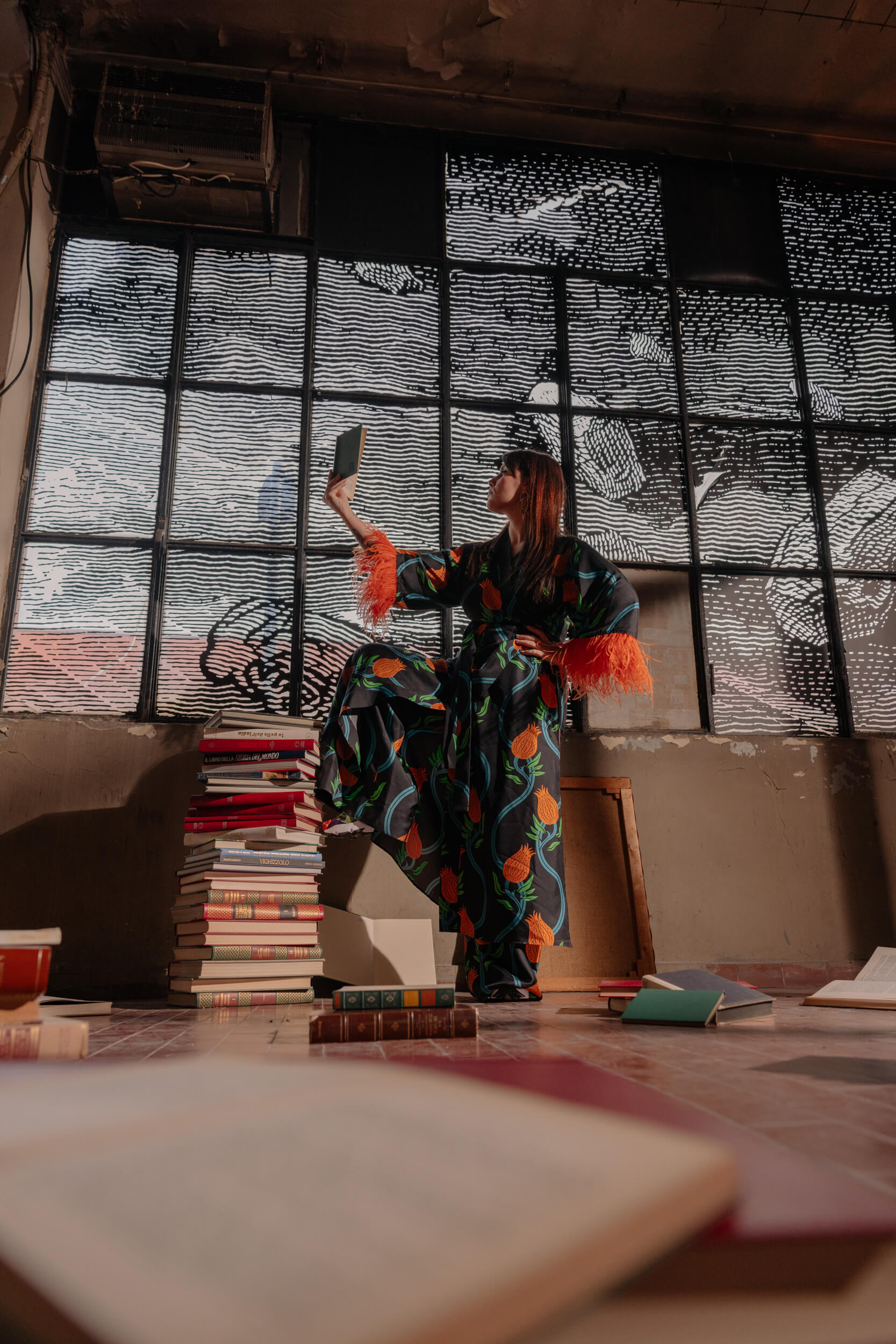
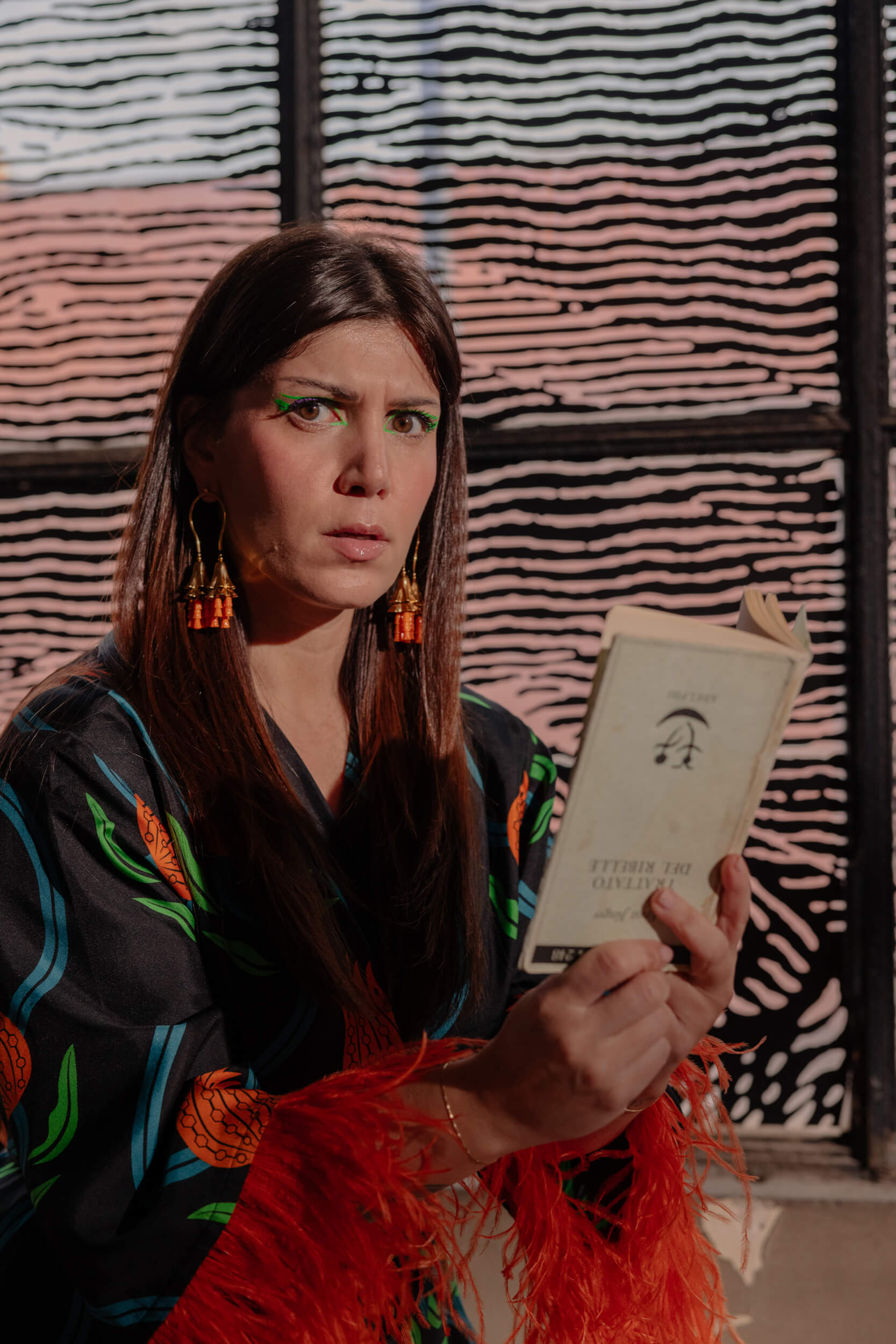
So, my first therapist was the school counselor: luckily, my high school had made this service available for students and I could visit him during my school hours, so my mom knew nothing about it, also because I didn’t feel free to tell her. I gave it a try, it helped me a little bit, and I instantly identified it as a space that was all mine to open up my heart, to say things out loud, to make a balance on how I was handling some situation and how I could have handled it better, what were the help sources I needed besides therapy.
If I think about it now, that I’m double that age because it’s been 25 years, and I’ve been in therapy for 10 years, not on an ongoing basis but at different times, I’ve got to tell that 15-year-old girl: “You’re a genius! You’ve been amazing! You’ve been so good because you managed to identify a need” and I went to therapy even though I had been raised with completely different values. I’d love to be that person myself, that voice saying “of course, you’re going, what’s the problem?” to lots of people who maybe have their family or friends making fun of them and misunderstanding them, and they’re not the right place to look for confirmations; however, it’s essential to find those confirmations and free ourselves from fear and shame.
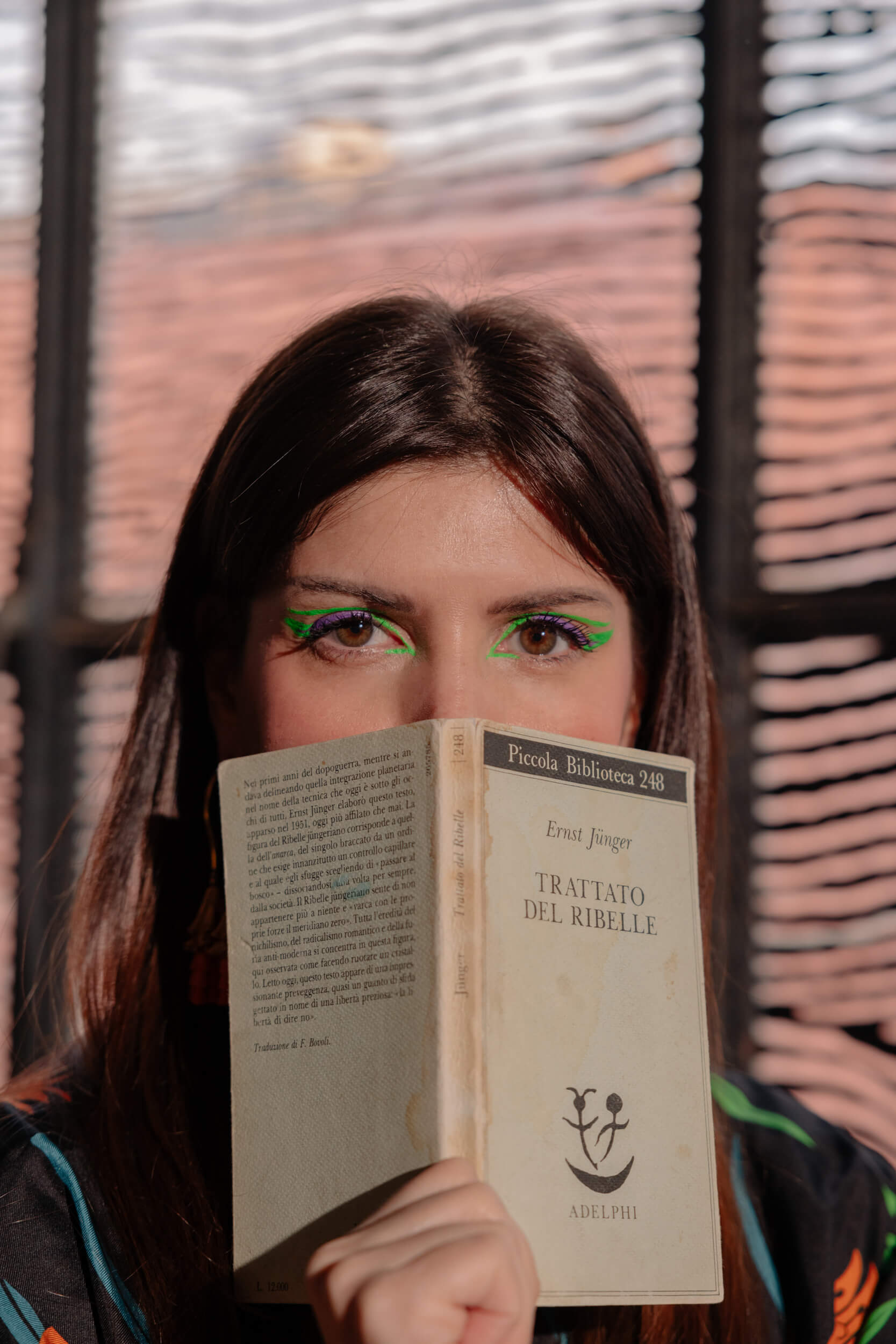
“I’d love to be that person myself, that voice saying ‘of course you’re going, what’s the problem?'”
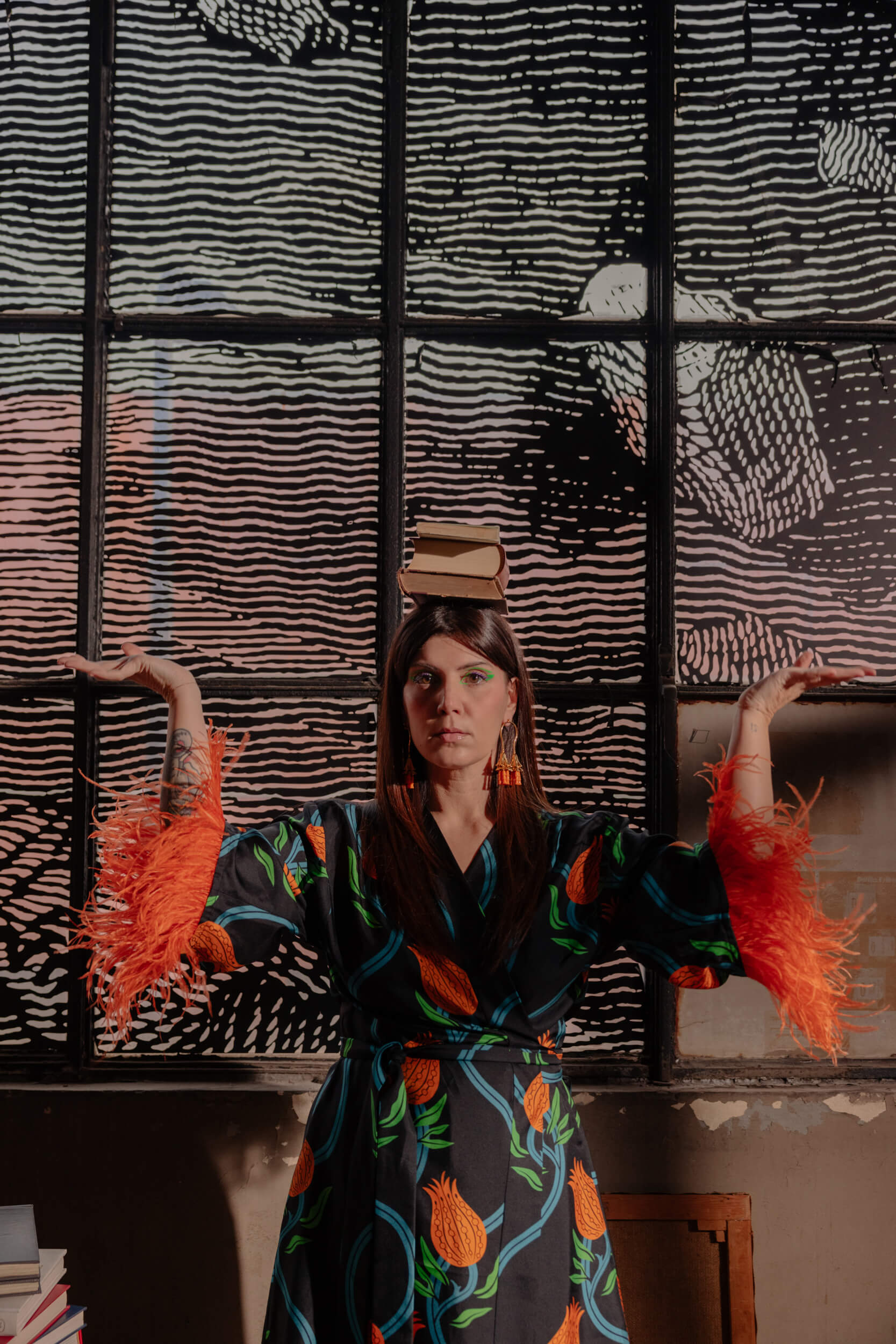
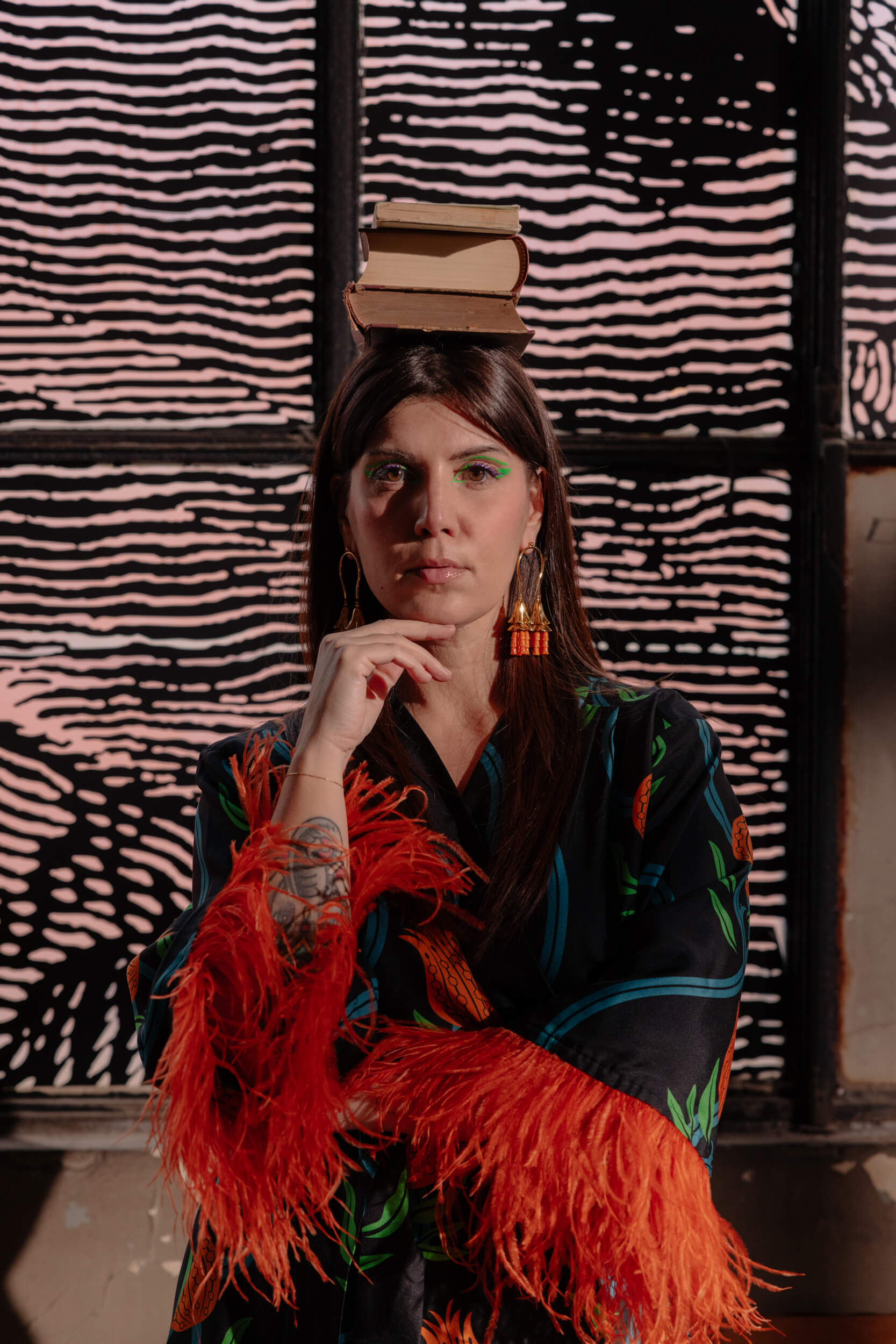
Were there any moments in which you felt it was too hard, and thought to quit therapy? Or was yours a smooth kind of journey?
There are some therapy sessions in which you realize your therapist has torn you to shreds [laughs]. Moreover, even though I love my therapist and I would give her a Nobel prize for my peace and that of people surrounding me, with her I’ve always recognized how the work you do in therapy is a work that you do yourself, other than your therapist; if you think about it that way, the immediately subsequent sentence to “they’ve torn me to shreds” is “I’ve torn myself to shreds,” and so, when you attribute that work and that reasoning to yourself, you can instantly understand the entity of what you’re doing and even catch a glimpse of the miracle of maieutic your doing: you’re giving birth to a part of yourself that maybe in the future you’ll let go, or rather keep with you forever. From that point of view, I’ve always thought it was worth it to make a lot of efforts or destroy some certainties you had and feel lost, and think: “Enough with that, I quit because it’s too hard, it’s a burden I don’t want to bear, I’m tired, I’m not into it, I’m fine after all.”
However, stalemates happen, moments in which you delude yourself or even, understandably, take a break because sometimes you also need a moment to process those kinds of tools. I’m not one of those who think that therapy is a straight path, and that when you start it, you’re damaged and when you finish you shine bright, also because if it were for me, I would do it all life long. I think it’s so important to have that space for autonomy, communication, also in order to avoid bothering other people: at some point, I realized I was happy to go to therapy also because I didn’t want to be a toxic person for those around me, and when I didn’t need it directly for myself, I needed it to relieve the others from me. There are many ways to lay on a therapist’s couch, and endless reasons behind it: different rhythms, different timings, every single one of us walks their own path, and everything is possible, everything is revisable and mutable over time.
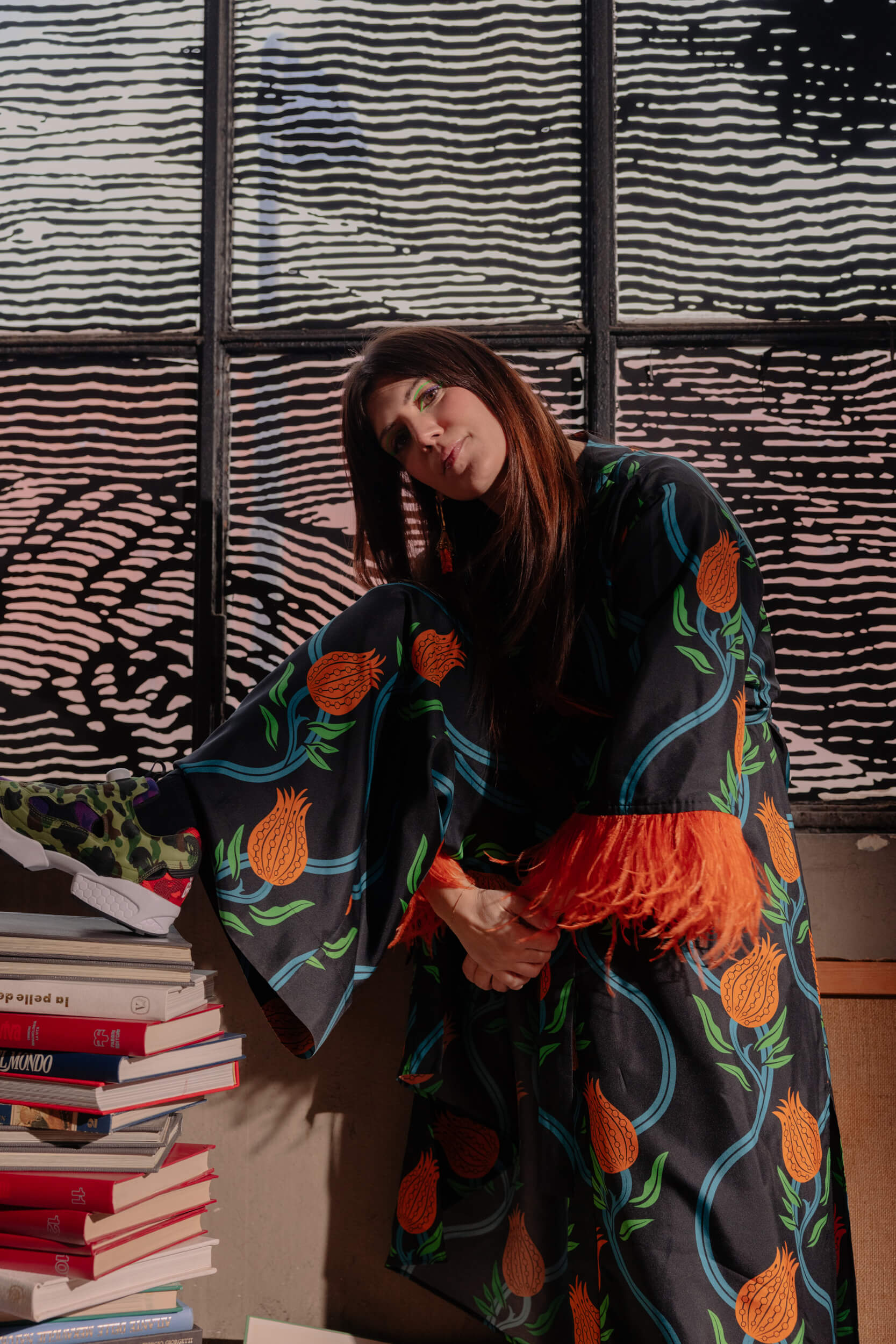
Just a few weeks after I’d started going to therapy, my therapist told me, “Look, Valentina, we can call it a day” because according to her, I was lying a lot, and she was right because I didn’t say things the way they really were. I got so scared that I was risking losing that space, even though I wasn’t using it in the right way, that I spent one-hour crying. Then, from the following session on, I started lifting off. My therapist was quite strong because I could have become very touchy, but luckily, I had that kind of reaction and it was so helpful. It’s easy to lie to yourself and to lie in general, even to therapists.
And think about how many times the people around you noticed you were lying but, to protect and cuddle you, they have never told you things like: “Valentina, what the fuck are you saying?”. So, think about how well-intended some behavioral dynamics towards ourselves and other people are, as a sort of equation that repeats itself uninterruptedly. On the contrary, we need someone from the outside telling us: “Look, you can maybe play this game with the other people, but not with me, and it’s very silly of you to play it with yourself.” It’s an epiphany.

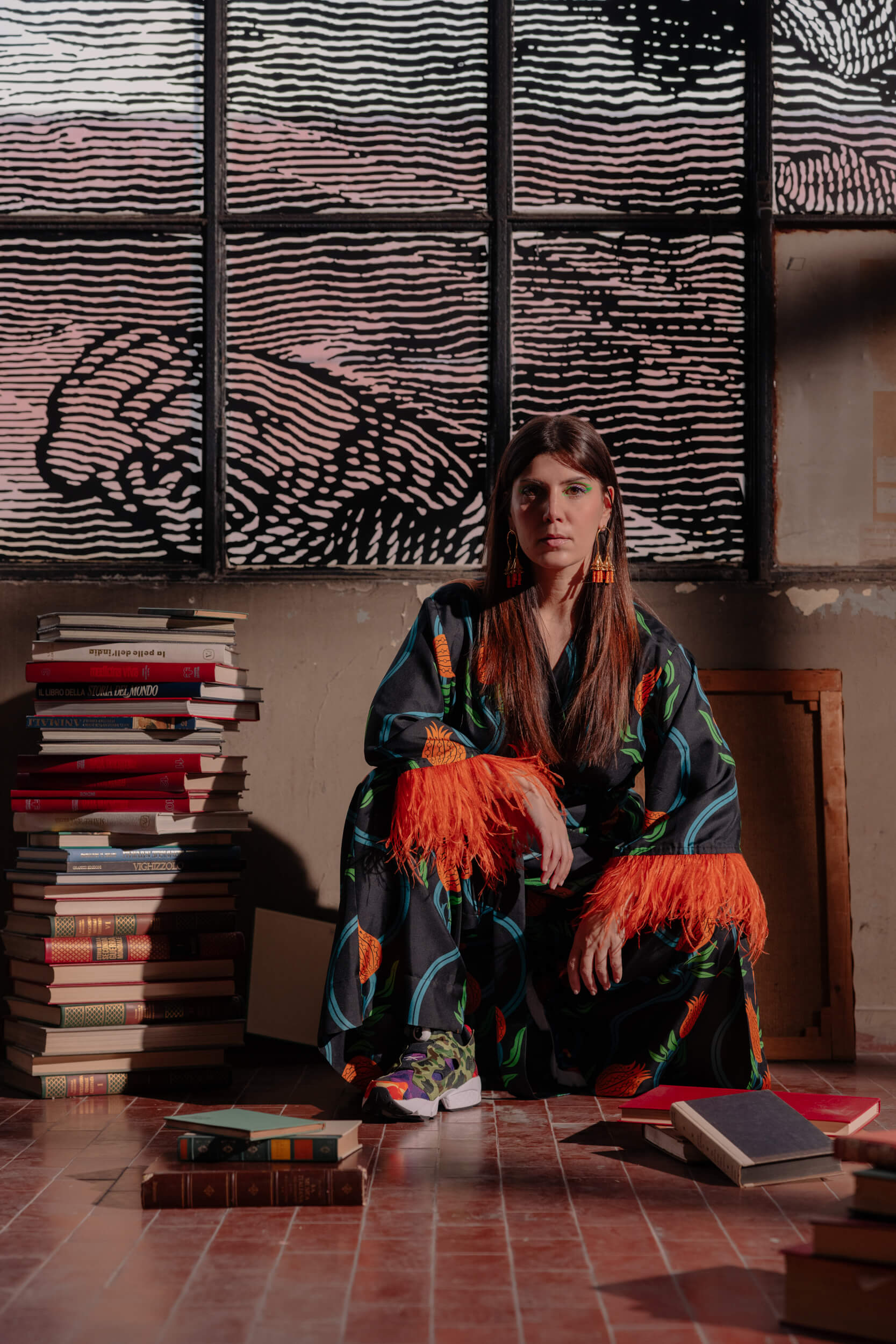
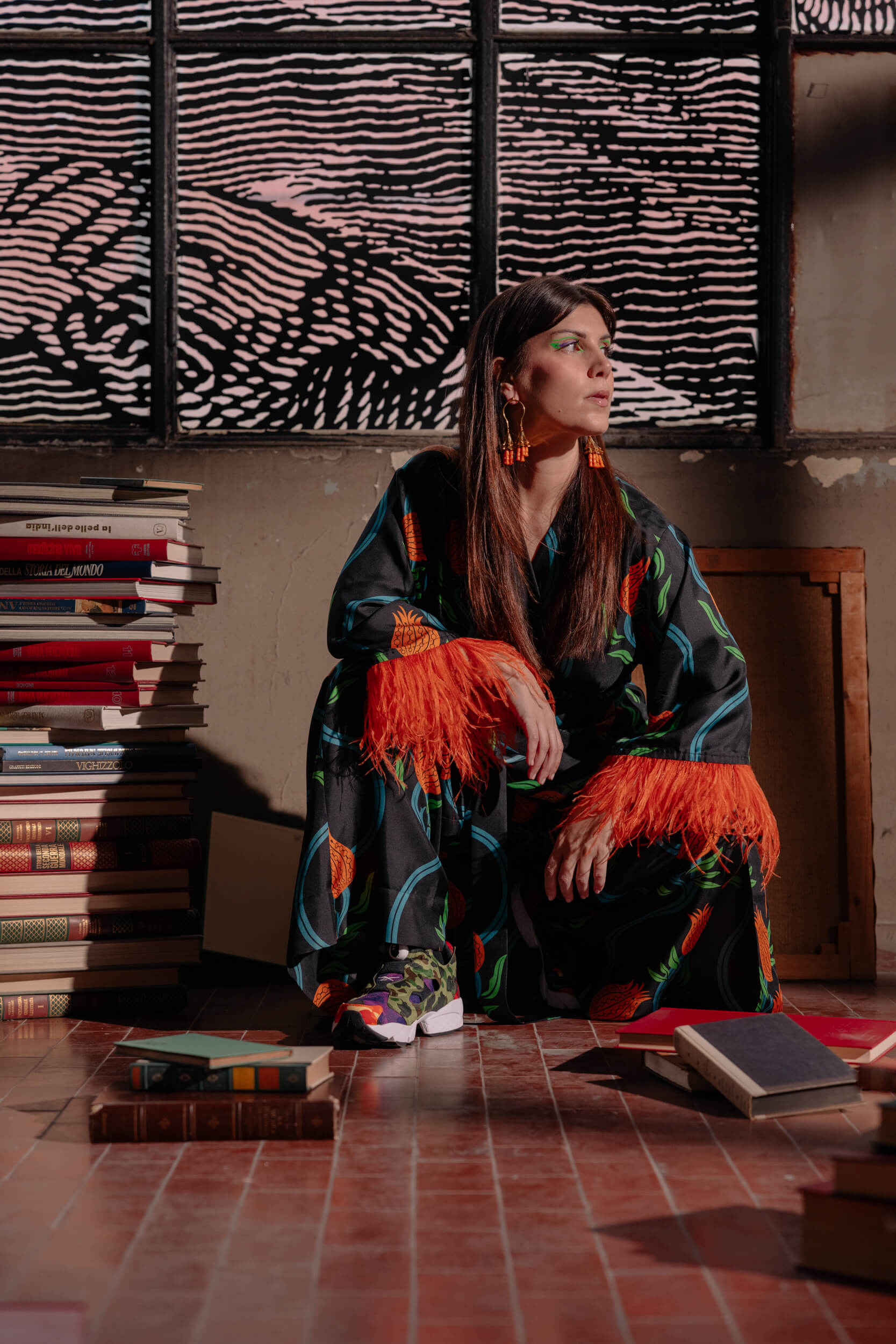
Speaking of which, what’s a lie you’ve recently told yourself?
I’m at a phase of my life in which I feel pretty happy with truths, and perhaps it’s one of the first times ever. I feel that the things I say and tell myself are true, and maybe this happens because I’ve given them the space to exist. So, in this phase, I don’t feel like doing jobs I don’t want to do, I’m happy to say no, I’m less available for compromises on the things that, somewhere deep down in my brain and in my heart, I know that are going to make me suffer in the long run, I want to stay a bit more in the truth. Besides that, lies are also hard to keep apart from habits, from the desire to protect others.
I don’t know what the latest lie I’ve told is, but maybe sometimes it’s a good thing for us because sometimes lies can be truths that are waiting to come out. However, I know and I can say this quite frankly now, that I’m not lying to myself about the important stuff anymore, in fact, I’m feeling pretty good! I can now say out loud, “I’m interested in this, I’m not interested in that,” “I like this and I don’t like that,” “I want to do this and I don’t want to do that,” and I can also tell the people that are close to me, my boyfriend, the people I work with, “Guys, I don’t like this, let’s find another way,” without worrying about sugarcoating the truth for them nor for me, which doesn’t mean I’m an asshole, but it means that I live in a situation of truth, and this is totally saving me.
Being able to say no is so liberating.
Yes, and what you build in an authentic space is destined to stay, while what you build of yourself and your relationship with others and with your work when you’re in a situation of make-believe, unfortunately, is meant to devour you because that’s not you, and it will always cost effort. No one, in the long run, can live in the make-believe, in the lies, in the compromise that doesn’t make you happy: it’s a one-way thing.
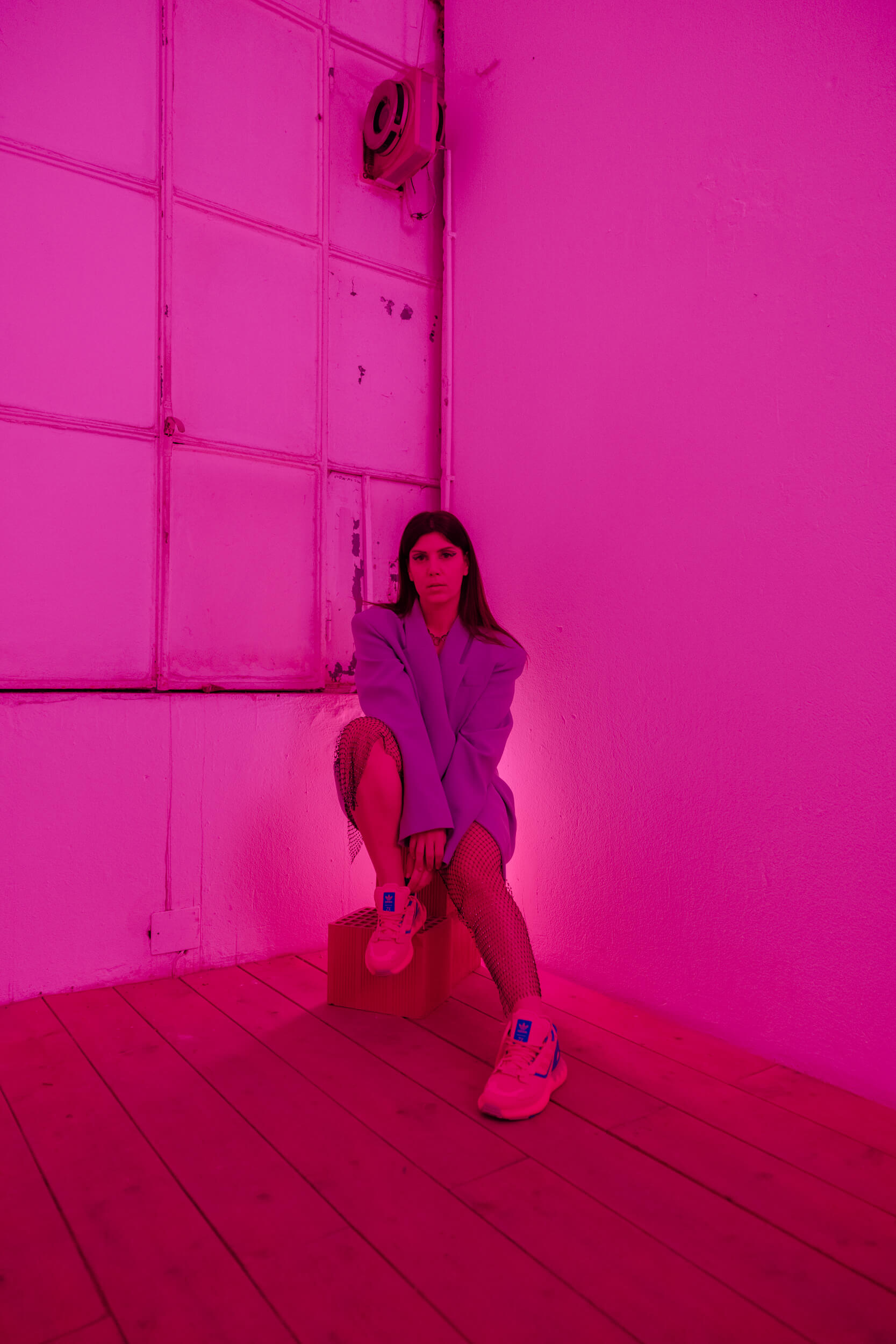
“I want to stay a bit more in the truth.”
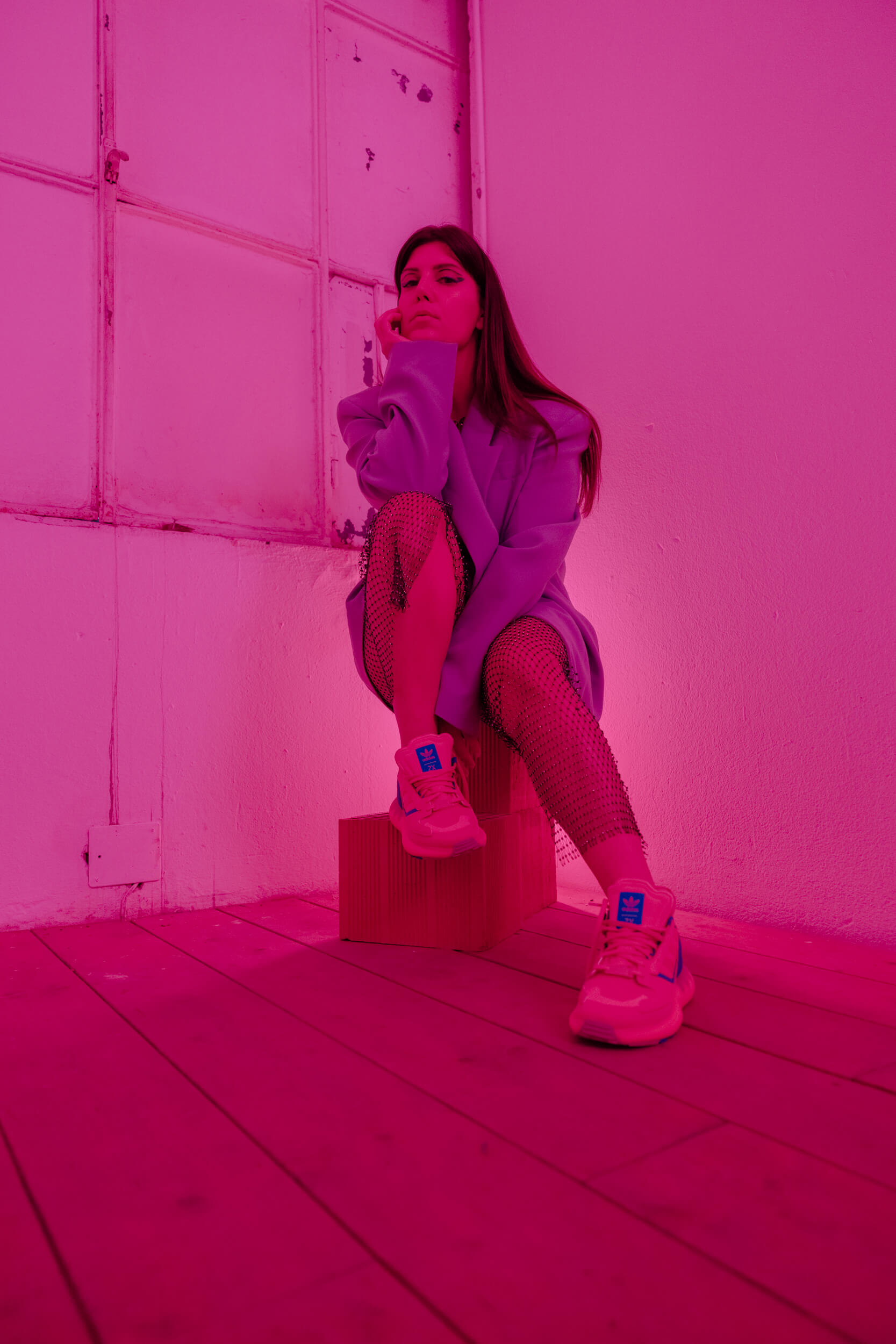
On the other hand, reconnecting to what we were saying before about what we’ve been through over the past two years, have you ever felt lonely? Not only in relation to what has happened to all of us but broadly speaking.
During our first lockdown, I was in Milan on my own, my then-boyfriend had just broken up with me in a very bad way, so I moved to Milan because I wanted to start a new life. I had no house because, after the breakup, I had to leave my house in Rome, so I thought to start again, rebuild myself in Milan. I arrived in Milan on February 29th and on March 7th they locked us in, and I was alone in a house and in a neighborhood that I didn’t know. I touched no human being for 76 days, and the first time I had physical contact again with someone was by accident because one of my colleagues at the radio wanted me to feel how cold her hands were; at that moment, I felt an electric spark, a rush of adrenaline, or something like that.
I’d gotten so out of the habit of having physical contact with people, and I remember that my therapist had given me for homework the exercise of caressing myself every night, caressing my hair, and shoulders, holding my hands one with another, caressing my legs, falling asleep hugging myself because that’s something on which our body founds its balance, touching ourselves, being touched, it’s a form of spontaneous caregiving that we have. I hadn’t touched anyone for 76 days, if I think about it now, and considering the way I am, I get goosebumps because I touch everyone, I hug everyone, for me the first form of contact with people is the physical one. The thought of it still makes me shiver and think: “Good God, what the fuck have we been through?”.
I felt very lonely, but I’ve also learned a lot because building up the autonomy of caregiving when you’re lonely turns out to be helpful when you’re in company. For example, when in my group therapy sessions I get asked, “don’t you ever feel alone?” I say that I do sometimes, but I like being alone, I like to know that I can have a situation of silence, autonomy, independence, also because that empty space is not a space that lacks something, but it’s a blank space that I have and can fill in any way I like, and it sounds like a huge achievement to me.
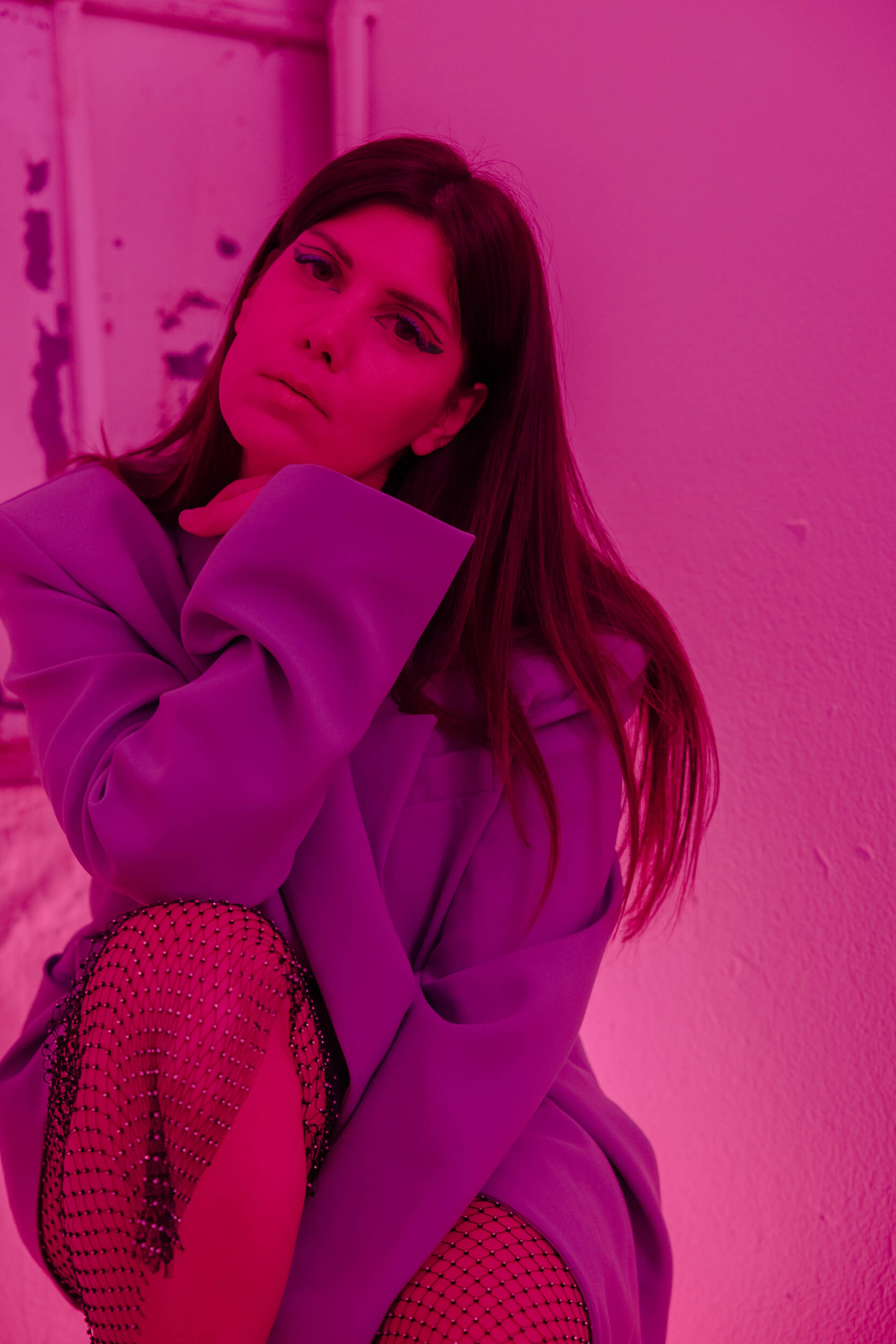
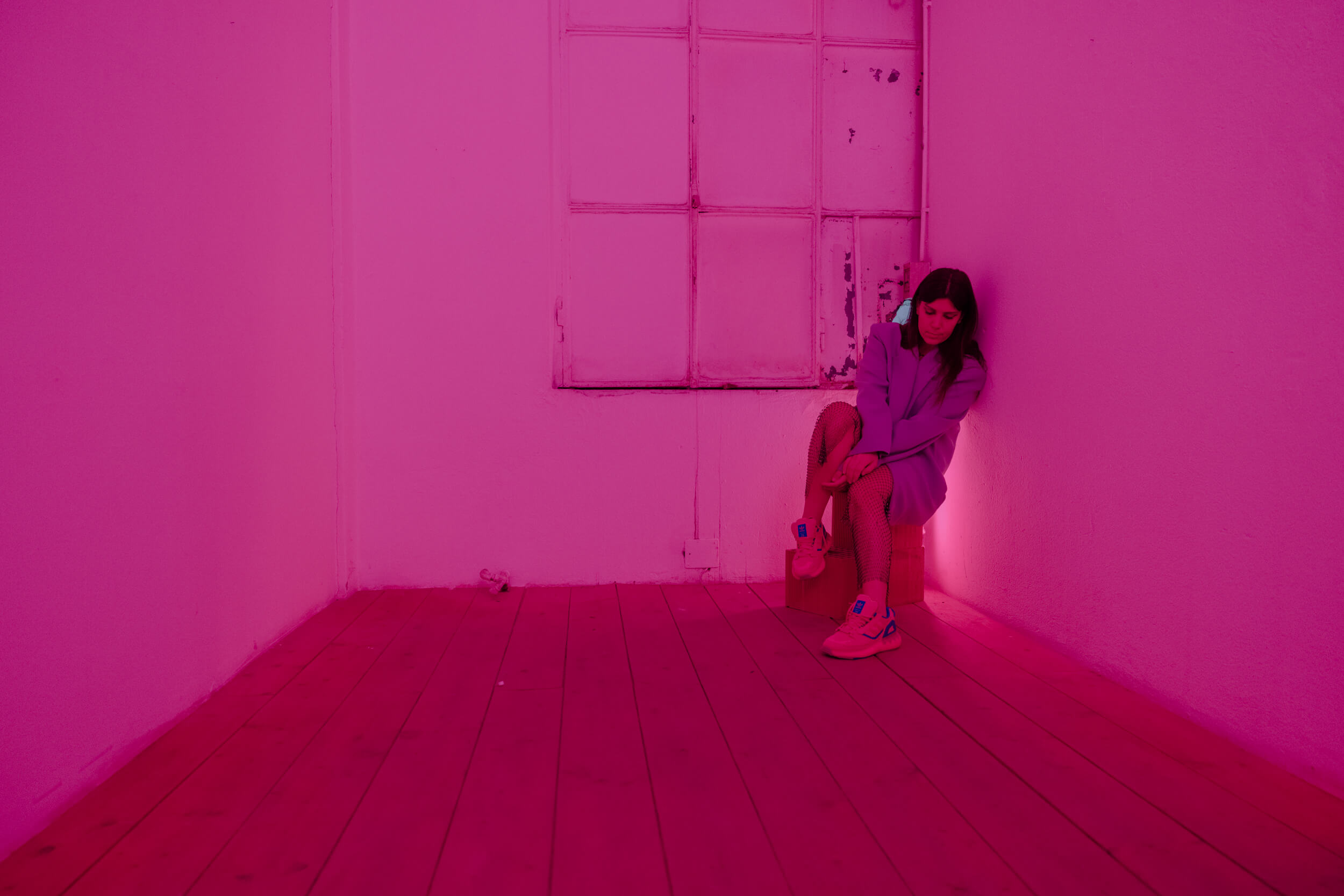
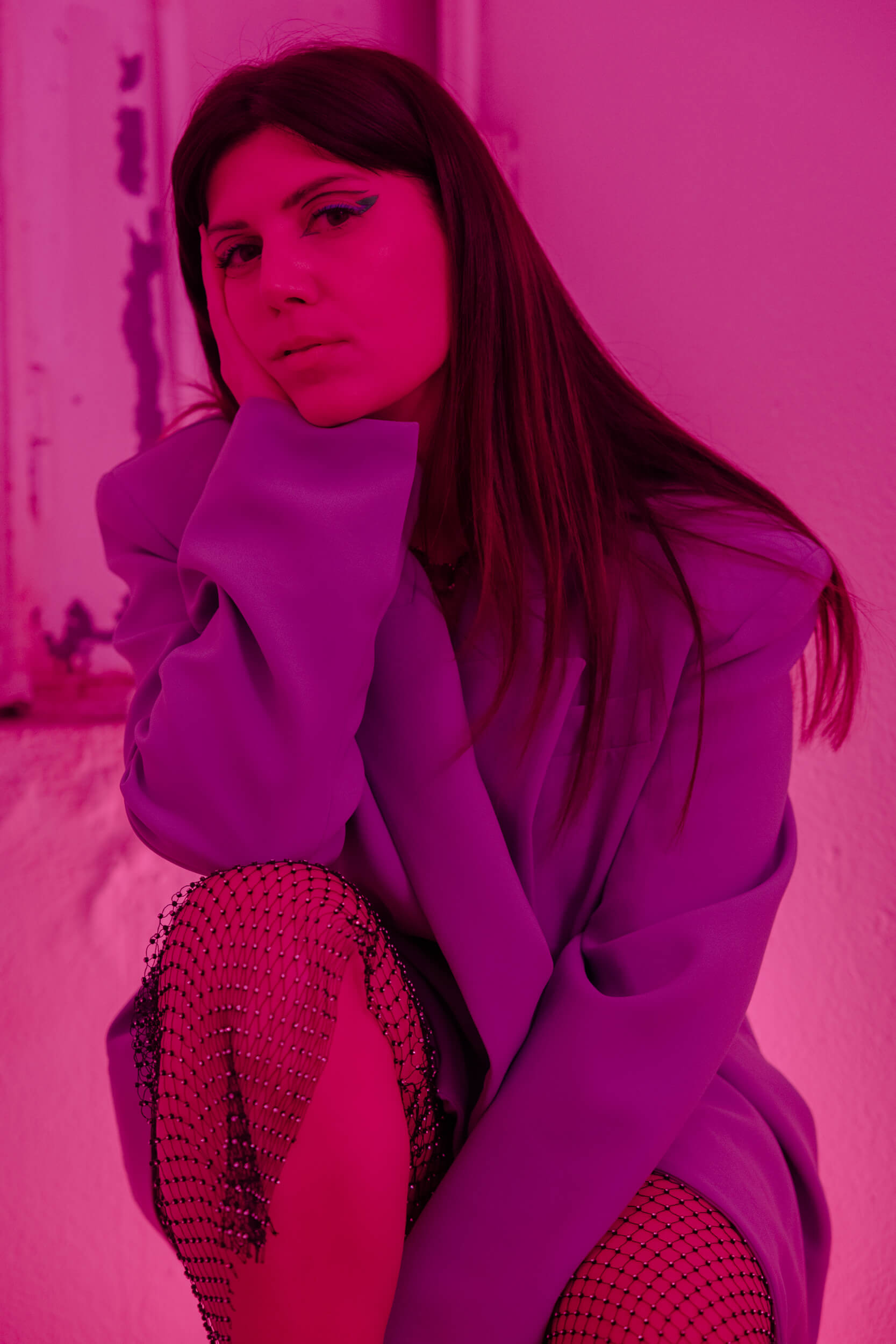
I remember that during our latest interview with you, we talked a lot about art and how helpful it has been during your journey, both work-wise and in your life. Is writing, as well, an important activity in your everyday life, or a moment you save for yourself, an almost therapeutical time?
You know, as of now I’ve realized everything I do simulates the way I talk. I’ve understood that communicating things truly is a form of survival to me, a source of air; then, sometimes it makes sense for other people, too, and sometimes it only does for me. I’m not one of those who write on a daily basis, but when I do, it’s a way for me to put all things in line: to give order to things putting them down on paper means identifying the subject, verb, cause, and consequences of things. I realize that the way I write recalls the way I would talk to my therapist, in the sense that I need to say things out loud to be able to understand them, I’m so fucking lucky that I can tell them to other people and maybe even make them clearer for someone or spark some reflection or understanding, so I see it as a useful activity, essential for me, and maybe kind of useful for other people. So, I don’t write every day, but when I do take some time for that, it’s like if I’m enclosing my spaces for reflection, words, understanding, inside of me, that at some point become logical.
Speaking of your latest book, “Perché no? Il libro delle domande,” what’s the question you’re most frequently asking yourself, and what’s the question you’ve answered yourself with?
Do you know why I’m so happy I’ve called my book “Why Not?”? Because it keeps being my jolly question in my life, and I keep thinking that it’s a very powerful question, and not only because “why not” means “come one, yes,” but also because a “why not” forces you to reflect upon why you can’t do a certain thing, why you don’t think it’s right to do a certain thing. Behind the noes, there are fears, impostor syndromes, mistrust towards others, the firm belief of what is right for us, which are the important things in life that we need to focus on. So, when I say “why not?”, that’s not only something like, “shall we shave our heads and leave for Madagascar?”. Why not can also mean, “Should I do this job? – Why not?”, is it because it doesn’t fit me because it wouldn’t enrich me in any way, or because I don’t like the way in which it will be made, because I don’t like the way in which it will be understood…? A no is important as much as a yes, and questioning the reasons behind a no and a yes is always the right thing to do, I think, it must be the first link of a virtuous chain, in the sense that eventually you get to the end knowing something more about yourself. It always seems a miracle to me when I’m able to wonder, “why is it that I don’t feel like doing this?”, “Why am I saying no to this job?”, I’m always happy to discover the “why yeses” and the “why noes”.
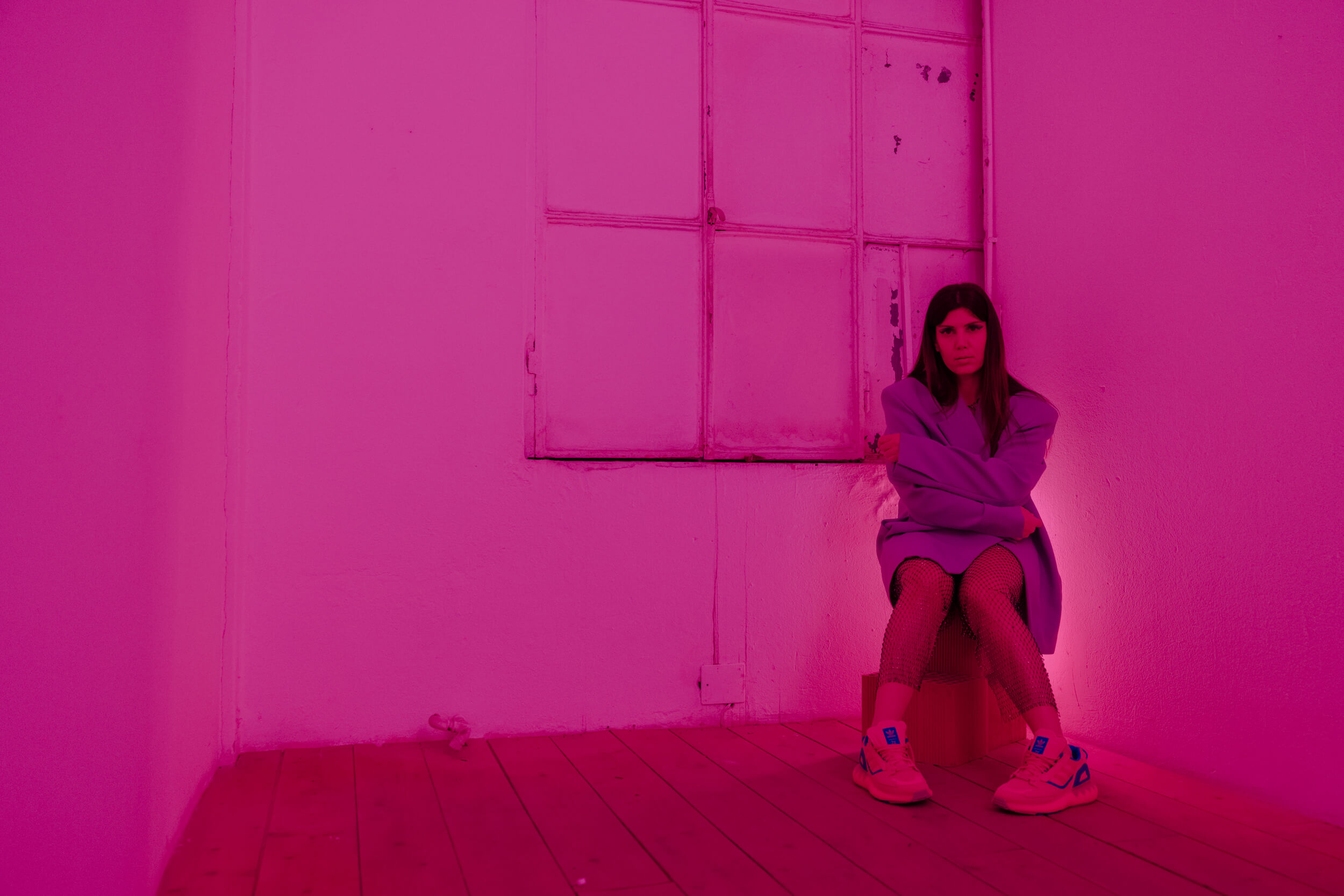
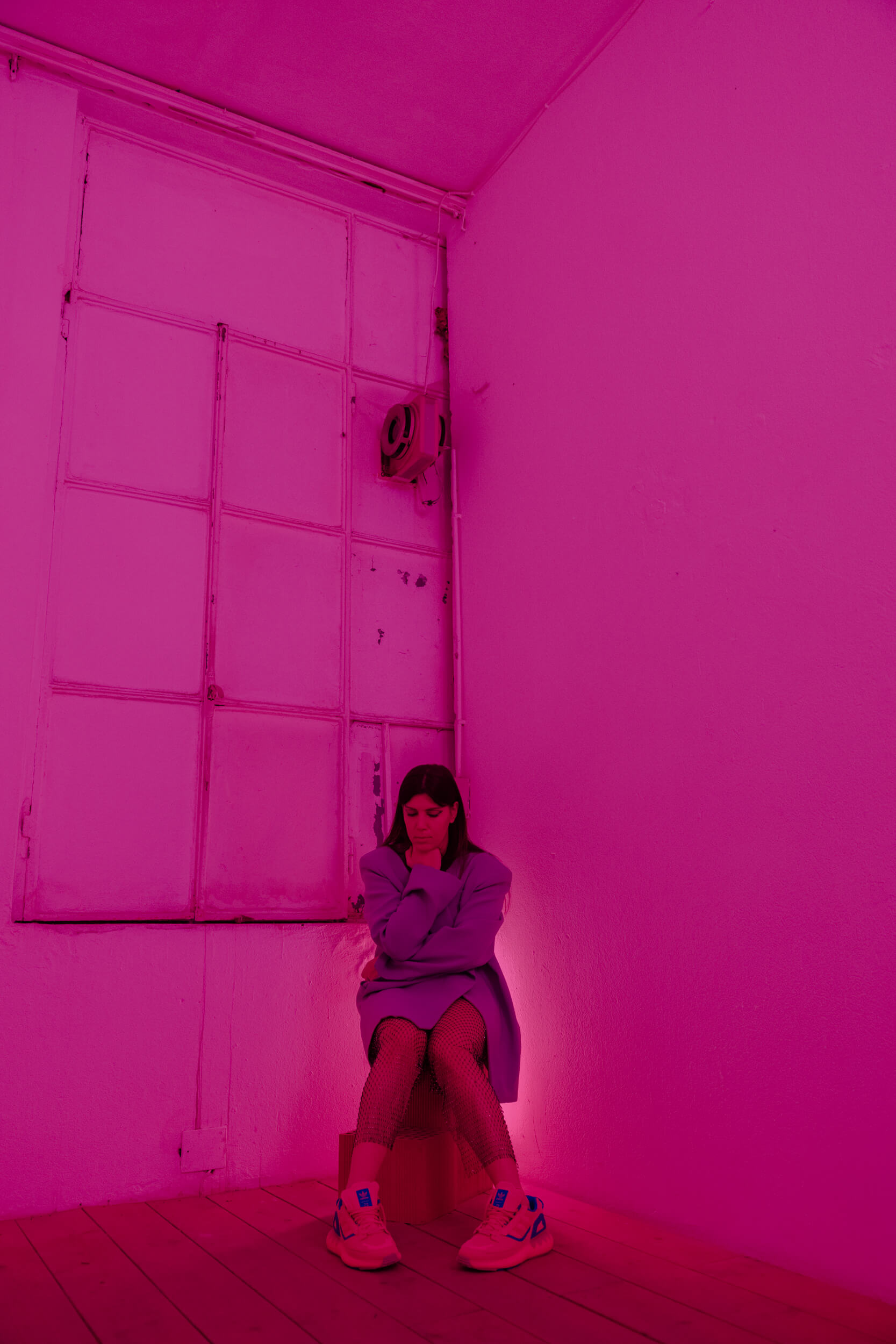
What pisses you off the most, instead?
So many things. I’m still quite a lot a victim of expectations, not of other people, but my own expectations about things, so when I expect something to go in a certain way and then it doesn’t work out that way, I tend to easily get rough with reality, in fact, I complain a lot, and everything seems like the end of the world to me, I hate everything and everyone, I get really caught up in thoughts like “oh well, so we’re gonna die!”. I have these small moments every day where I feel pissed, and it makes me laugh because I always get pissed by the same stuff, and I keep on losing my shit about huge themes, things that in my head are moments of civilization, so I’m pissed of by public debate, political issues, I lose my shit because some TV critic tells Emma Marrone that her legs are too fat to wear a pair of stockings in 2022, and she’s an artist who’s filled up concert arenas, fought cancer, acted in movies, done the X-Factor, and she’s a millionaire.
I get pissed when we force ourselves to accept meanness, that kind of stuff drives me mad because it seems like we fight against our own evolution, like if at some point Homo Erectus came about and 50 assholes nearby told him: “Oh come on dude, hunch, it’s so nice!”. I get pissed when I think I’ve understood that it could be better than this and I can’t do it, that’s it. I feel frustrated, rather than pissed, I’m one who easily gets frustrated.
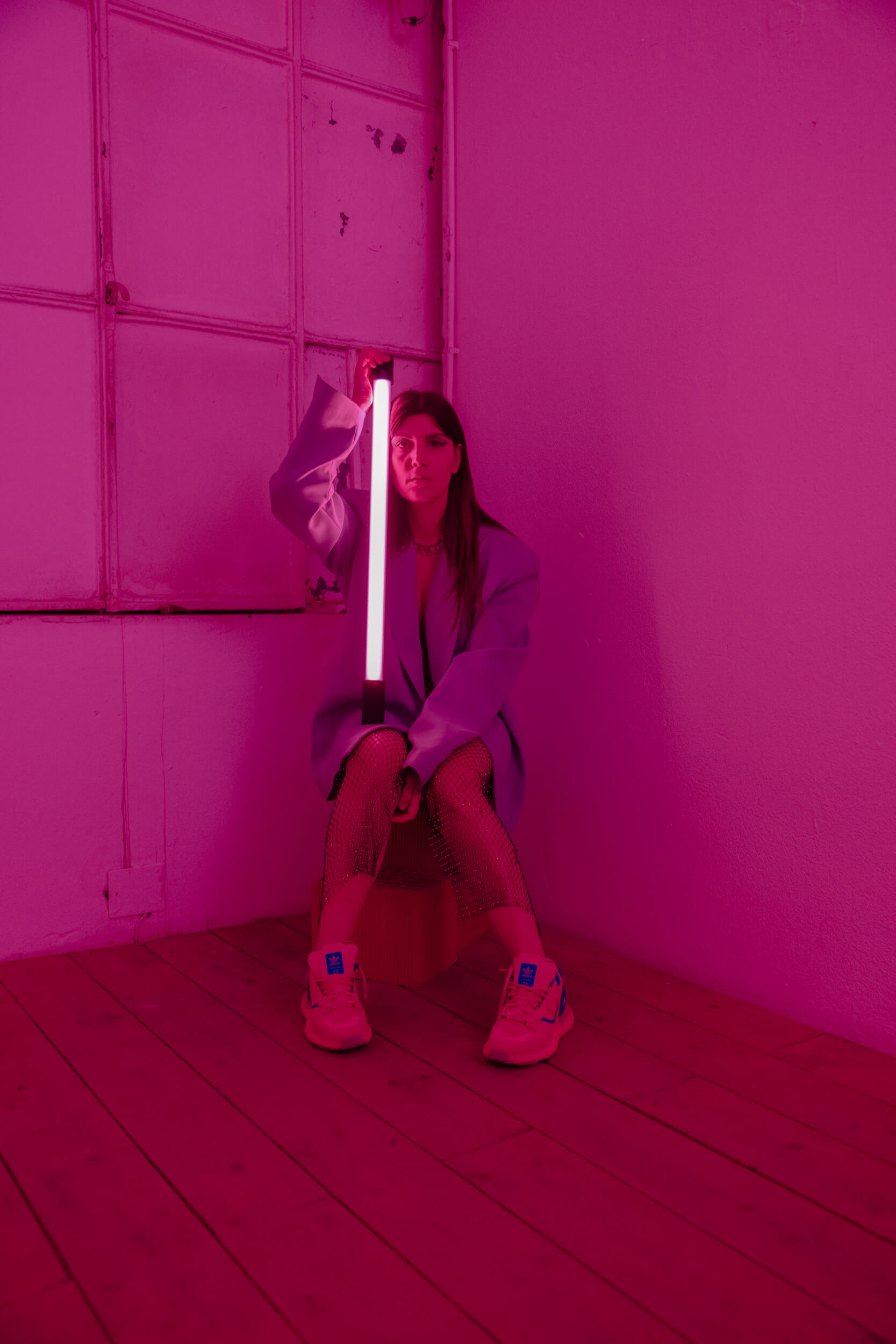
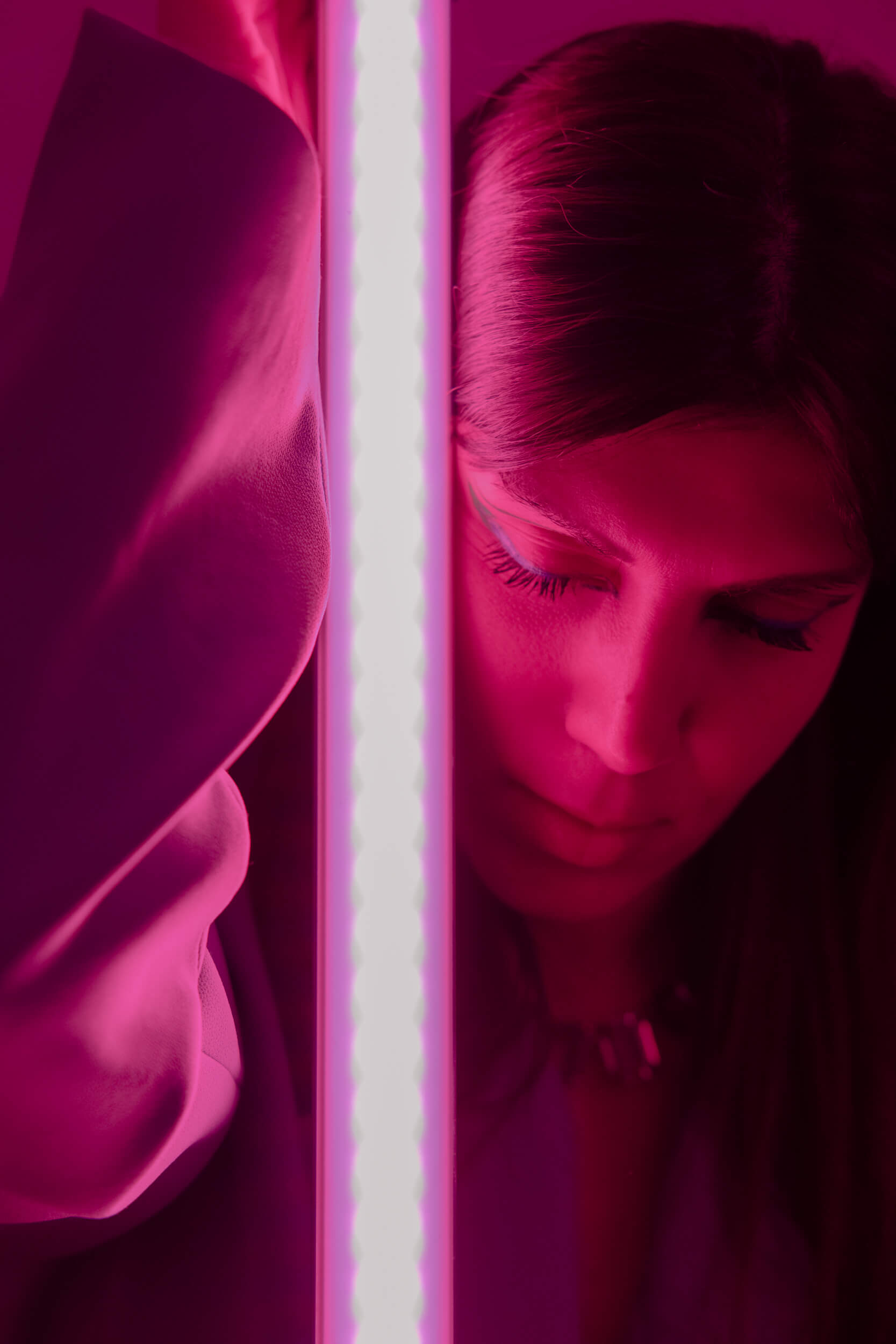

I remember that once we talked about the fact that your therapist asked you to do this exercise where you had to look at yourself naked in the mirror because it was something you didn’t do. Now, what’s your body for you? Has there been an evolution in your relationship?
My therapist made me do that exercise and another one that I hadn’t been able to do for years, while now I find it easy as a pie, in fact, it’s so funny to think about it. She would tell me to look at myself in the mirror, right in the eye, and say to myself: “You’re pretty, I love you.” Initially, I would tell her: “Are you out of your mind? I’ll never do it, this is mythomaniac stuff, I won’t fucking tell myself I’m beautiful, what’s wrong with being coyote-ugly?”. Now, I say that kind of stuff to myself in my car’s side-view mirror, I sweet talk to myself, but it’s not like a situation where I look like shit and tell myself I’m pretty because no one ever tells me that, it really is a self-care moment, I caress my inner self and tell her that I’m okay, and it sounds wonderful to me.
I can’t control my body. For example, now I’m a bit overweight because last summer I fractured a bone and let myself go because I couldn’t move and ate a lot, and I realize that being a bit overweight still makes me feel bad; however, at the same time, my body seems very functional, comfortable to me, I like it, I like the way I look next to people, I like the way I look with clothes on, I like what I see in the mirror, so it’s a sort of constant war between the desire that my body was perfect and the awareness that not only isn’t my body perfect, but my personality isn’t as well, and my relationship with my family, boyfriend, my job, the people I collaborate with, my intelligence is not perfect. In spite of all of this, I realize that, for example, the fact of not being able to speak languages fluently doesn’t feel like a huge problem compared to gaining four or five extra kilos, and that’s where I understand how my brain is fucked up because, for how many things related to my intelligence, my know-how, I allow myself not to be perfect, but then I spend hours looking at my belly and telling myself, “Eh, Daniela, you suck”?
I have a feeling I’m wasting hate, wasting the hassle. It helps a little bit to think that I have a body that allows me to do things, to exist, and it’s fine the way it is, it might not be perfect, just like my personality isn’t perfect, and my patience, and my clarity of mind, and my creativity; so, I ask less and less from this body, but I try and give more and more to it, I work out, I try not to ill-treat it, I take some time to relax. I left my job at the radio because it was starting to be too much, my life is unconventional because my schedule is filled with so many different things, none of my weeks is ever the same, and I’ve realized that this daily appointment, instead of being a keystone for me, had become a bit like having chains blocking my movements – I spend all day talking about mental health, the importance of taking care of your balance, and then I can’t recognize that I should organize my resources better? So, I did it and I have to admit that I’m fine, I don’t regret that because I know I take a breath, stop for a while, and I shouldn’t overload myself.
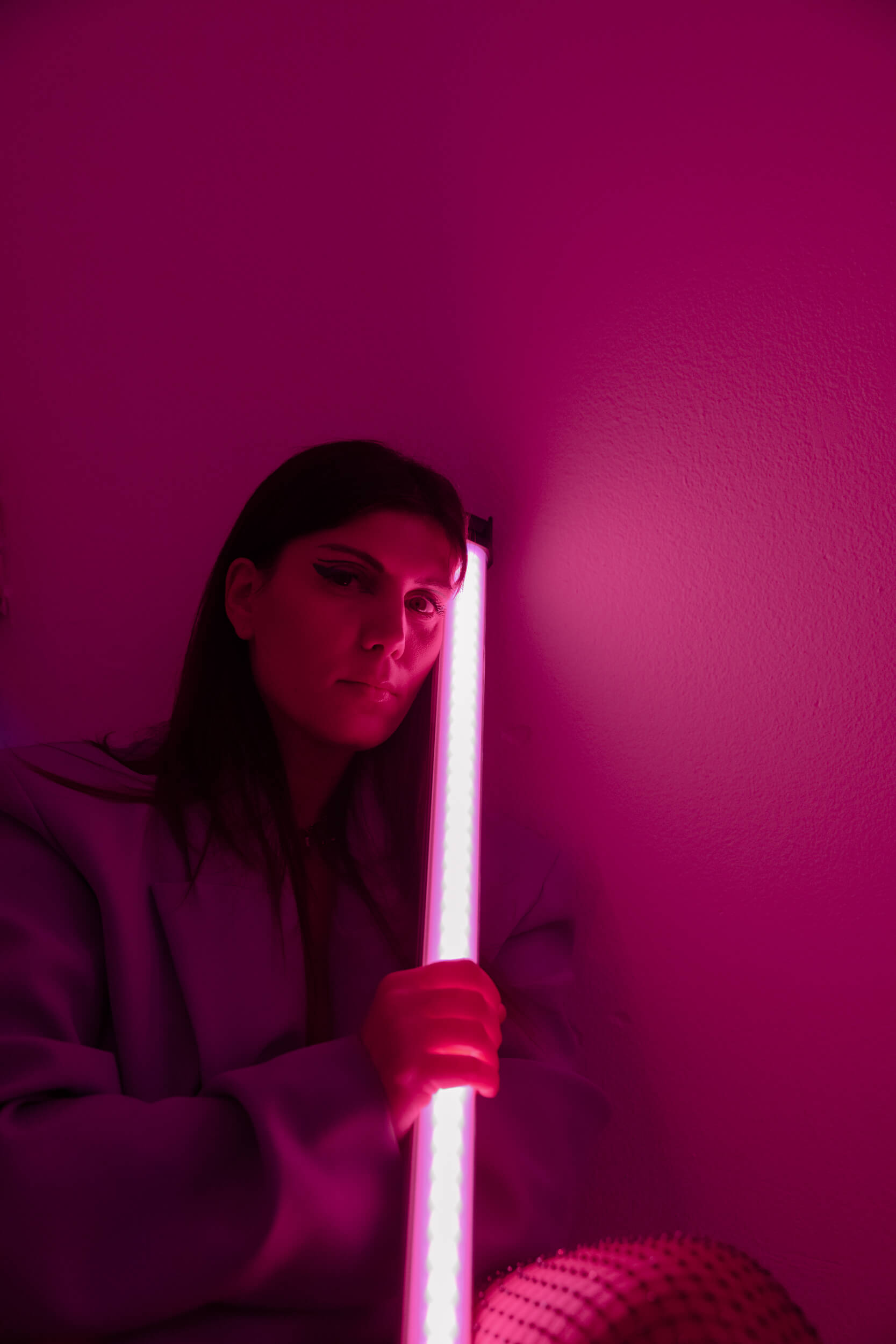
“I get pissed when we force ourselves to accept meanness.”
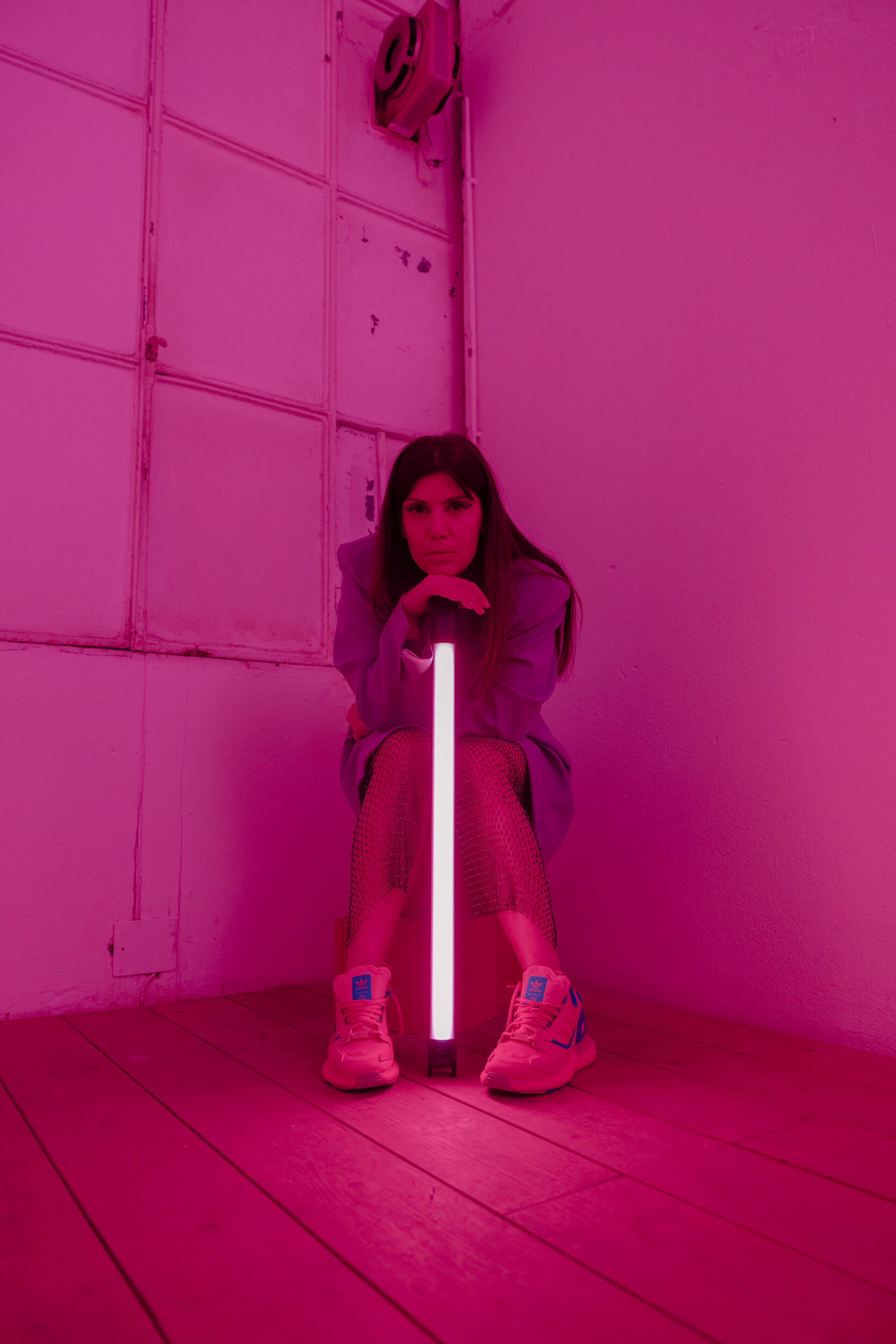
I love my body, I care about it, and I know that it loves me too and cares about me because it kept me on my feet when I didn’t think I could make it, it made me do a lot of things: it made me dance all night long, it didn’t pass out when I was drunk, it gave me a pair of legs to walk, run, get where I wanted; so, I have to caress this body a lot, and it’s okay, I have to thank it so much. I know that the idea of other people looking at this body will always feel a bit non-fluid to me, uncomfortable, and I will always need to often reorganize the resources and energy that I dedicate to this thing.
Okay, other people can think that my body is wrong, but what does this mean to me? What does it make me think, what does it make me feel? It’s a work of reassessment, of constant realigning because when you do the job that I do, it’s normal for people to look at you, judge you, it’s part of the game, a game I’m less and less interested in, but it’s part of the game.
What you just said is very beautiful, as well as what you’re managing to do with yourself.
Personally, only recently I’ve stopped offending myself in the mirror, but I haven’t gotten to the point you’re at. I’ve also realized how, depending on the people I’m with, when I know the person and the way they judge their own body and that of other people, my mood changes, how sometimes I feel bad and other times I feel calmer, comfortable, but it’s crazy how I still let myself be so much influenced by what the other people might think.
Can I tell you something, though? I’ve learned this also because I’ve studied my way of looking at people, so I thought: what kind of judgment parameters do I apply to others? I wanted to understand how strict my observation of people was. People don’t judge your body only from an aesthetic point of view. Looking at you, for example, I wouldn’t be able to tell if you’re slim, fat if you’re overweight or underweight, and I saw you with a girdle on only a while ago; for me, you have a body whose vibes are not aesthetic, but sensory. I think you’re bright in a way that, when I think about you, I think of the light on your face, and this is something that shouldn’t be underestimated.
The effects of the body don’t only involve the way you look with some clothes on, but also what it does to the other people; you have such an elegant sensuality, you’re bright, you move your body in such a beautiful way, your colors are perfectly harmonized, your skin is tactile also for those who look at you; when I make compliments for your skin, I’m not talking about the 10 steps of Korean skincare you might be following, I’m doing what I would do for something that exists in nature.
I have a friend who’s admittedly overweight, who has never heard about hairstyling and wears clothes that were fashionable 10 years ago, and she’s aesthetically out of any kind of circuit: I don’t know a single soul who doesn’t say that she’s a goddess. Let’s get used to looking at and experiencing bodies in a way that’s not fashion trends, standards; we should enjoy other people’s bodies and think that people can enjoy our bodies in a way that’s not, “that dress fits them well,” but, “shit, their eyes are so deep,” “their skin is incredible,” “I love looking at them when they’re eating,” “they move in such a nice way,” “their hair is so bright.”
Anything can help formulate some judgment on the body, but we tend to forget about that. Now, when they tell me my body is maternal, my first thought is: do I have an after-birth kind of body? Is it like I have a chubby belly because I’ve just given birth because I’ve gained some extra weight like pregnant women? Then, I feel like I want to punch myself in the face and I say to myself: maybe my body looks maternal because I can give good hugs, I’m welcoming, I move in a way that makes you want to sneak into it because I’m florid… But, fuck, it’s a nice thing!
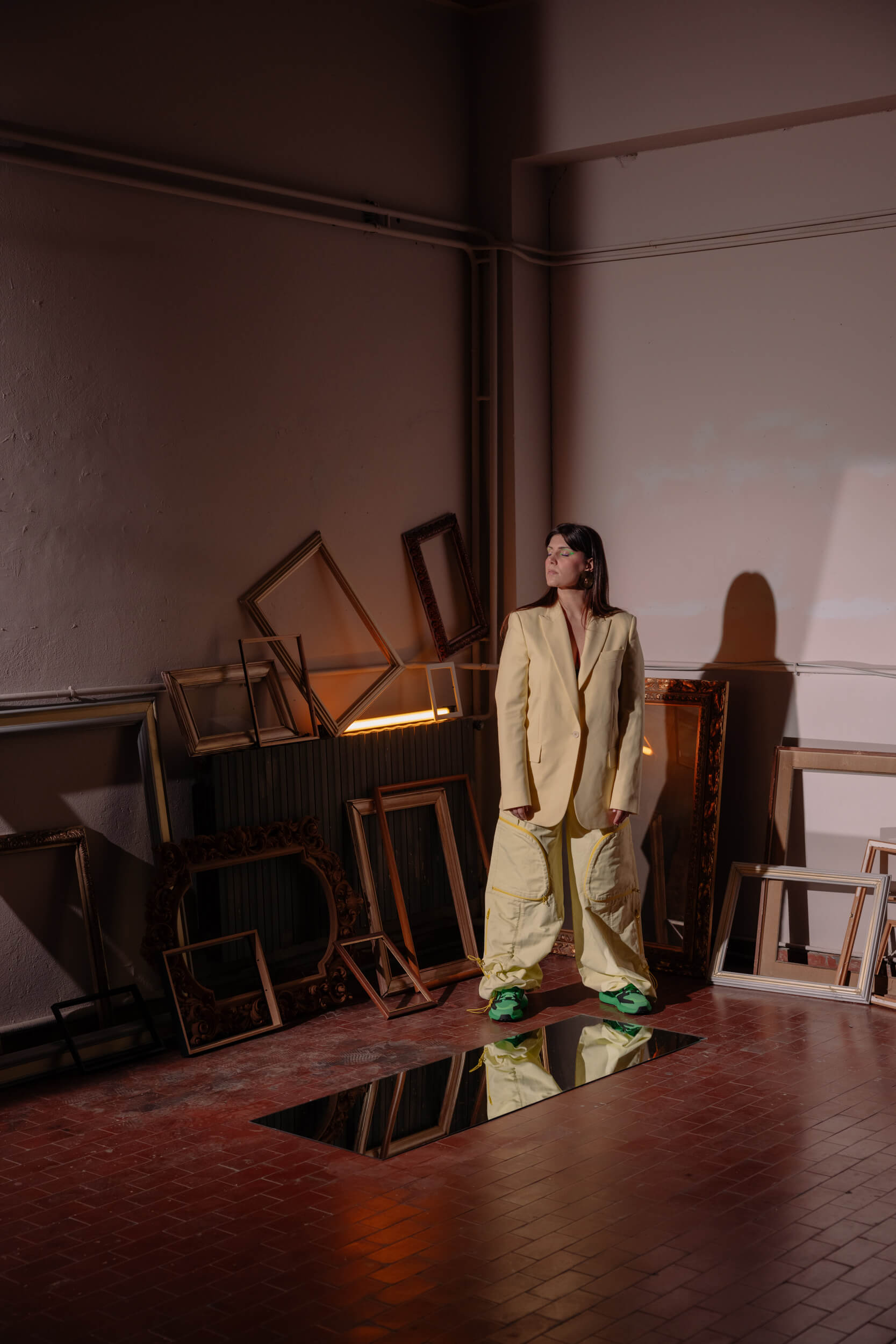
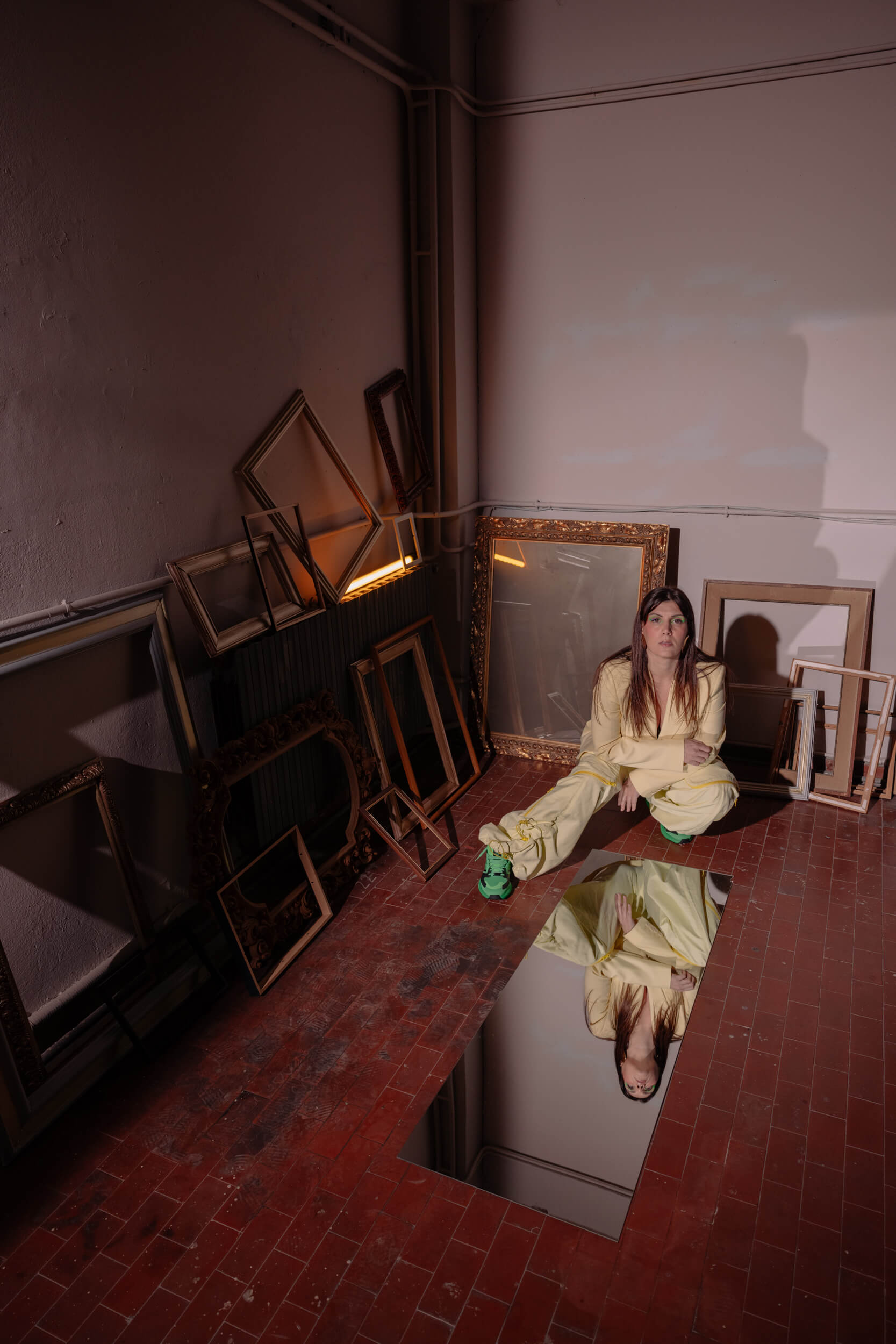
When I see you, I always feel like I want and I need to be hugged by you, it’s so true!
Oh, baby! And in fact, I do want to hug you! I don’t know, I’m tired of looking at things only through that kind of lens. One weird thing I’ve noticed is that my boyfriend, for example, the goofier and funnier I am, the more he loves me [laughs]. Every woman would always want to be a sex bomb for her boyfriend, and that’s also right, obviously, and it’s nice, but I swear to you that knowing that the more my body is crooked and wrong for me or the aesthetic standards, the more people will find a channel of appreciation, communication, contact channel, it opens up parallel dimensions that are not Zara’s sizes. I don’t give a shit about that kind of stuff! Then, what if an outfit I’m wearing for some photoshoot looks good on me and everyone tells me I look great? Okay, that’s nice, but I would love it if, in the relationship that I have with my body, a sample-sized Stella McCartney dress that fits me and looks good on me, and Valentina telling me, “When I see you, I always feel like I want to hug you” and “Your body makes me want to be all over you,” had the same weight.
You’re pure light, I think, the light loves you, it’s an incredible experience to look at you, you’re made of velvet for me, all I have to do is put my hands on it and enjoy the feeling, I’m very jealous of your boyfriend!
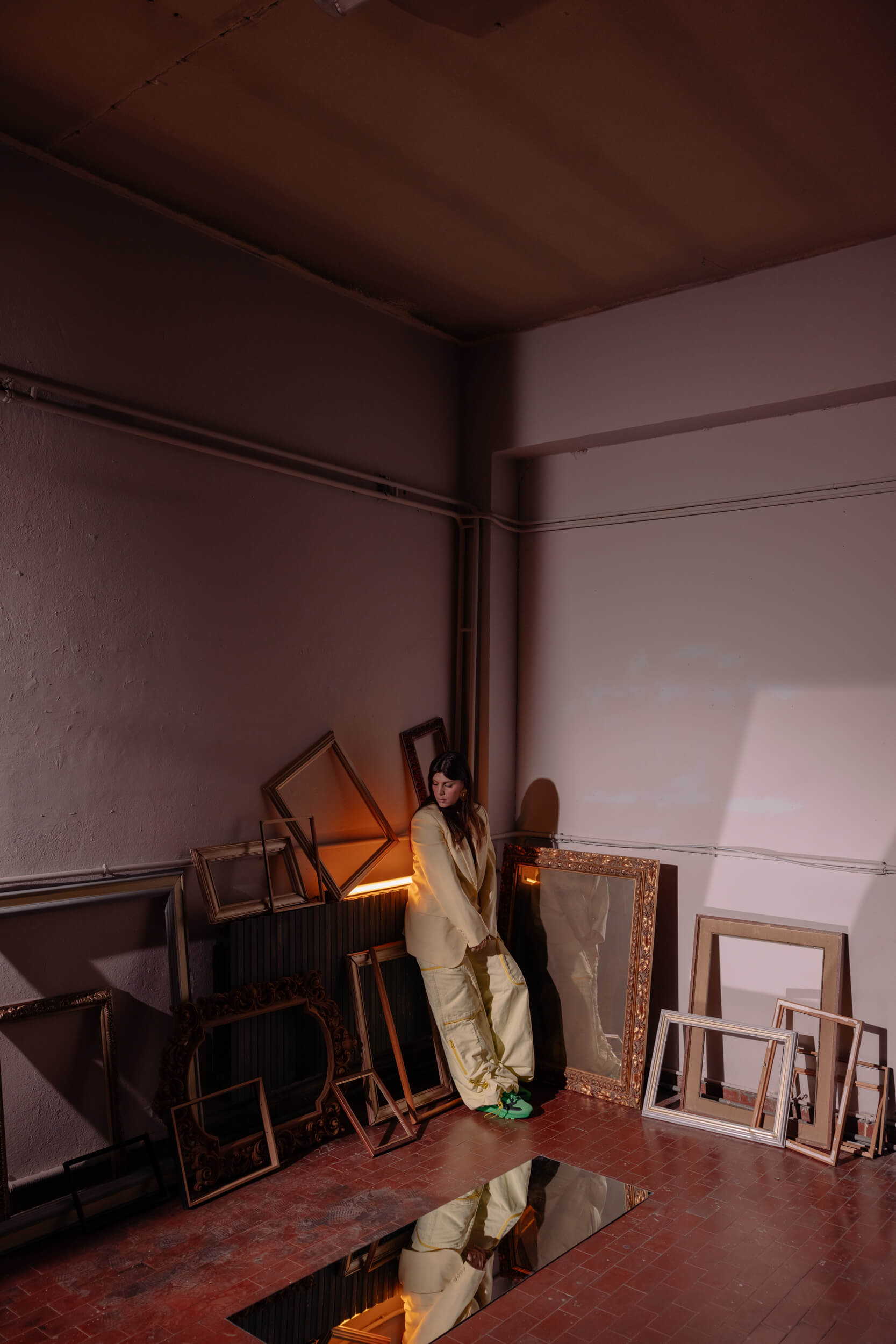
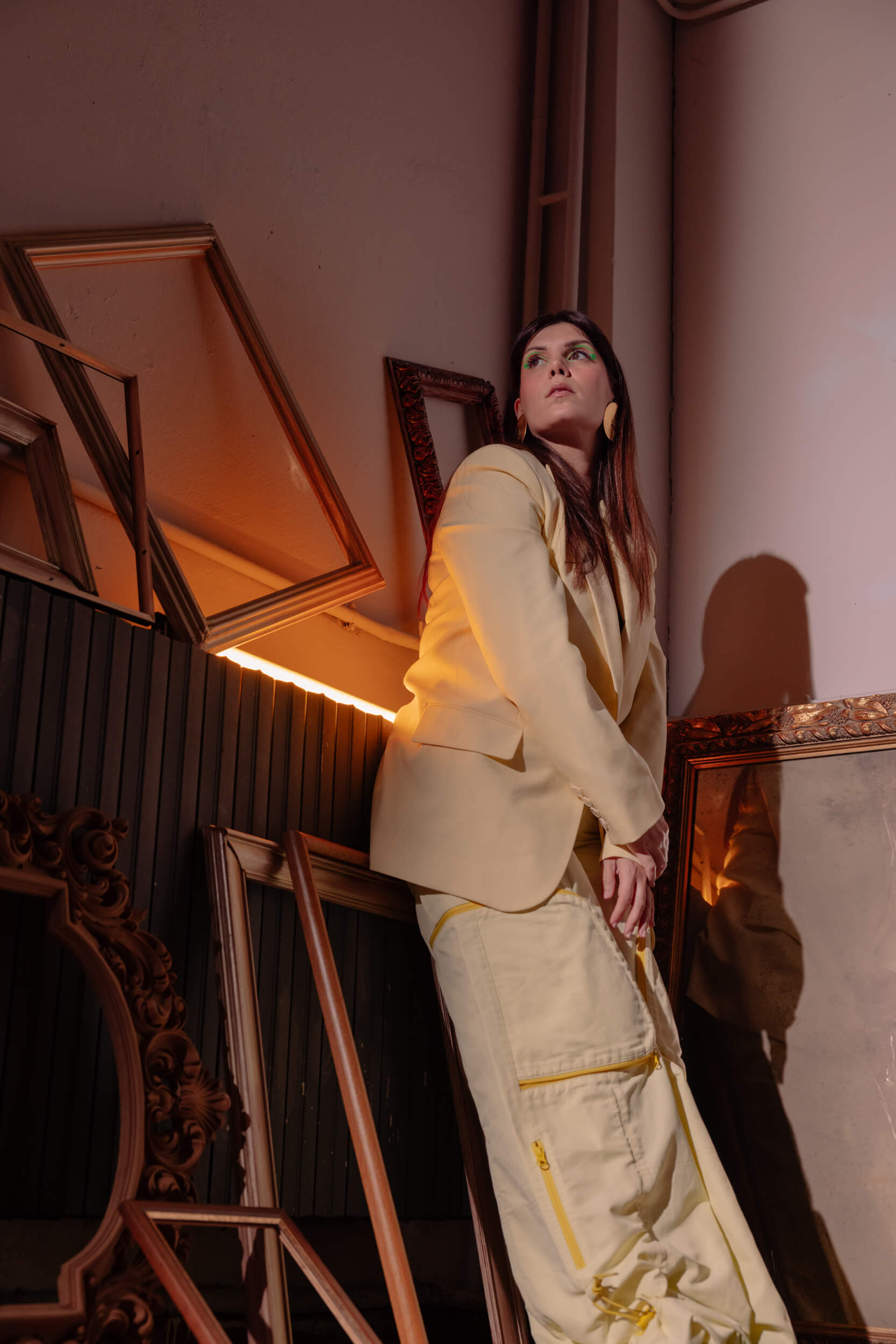
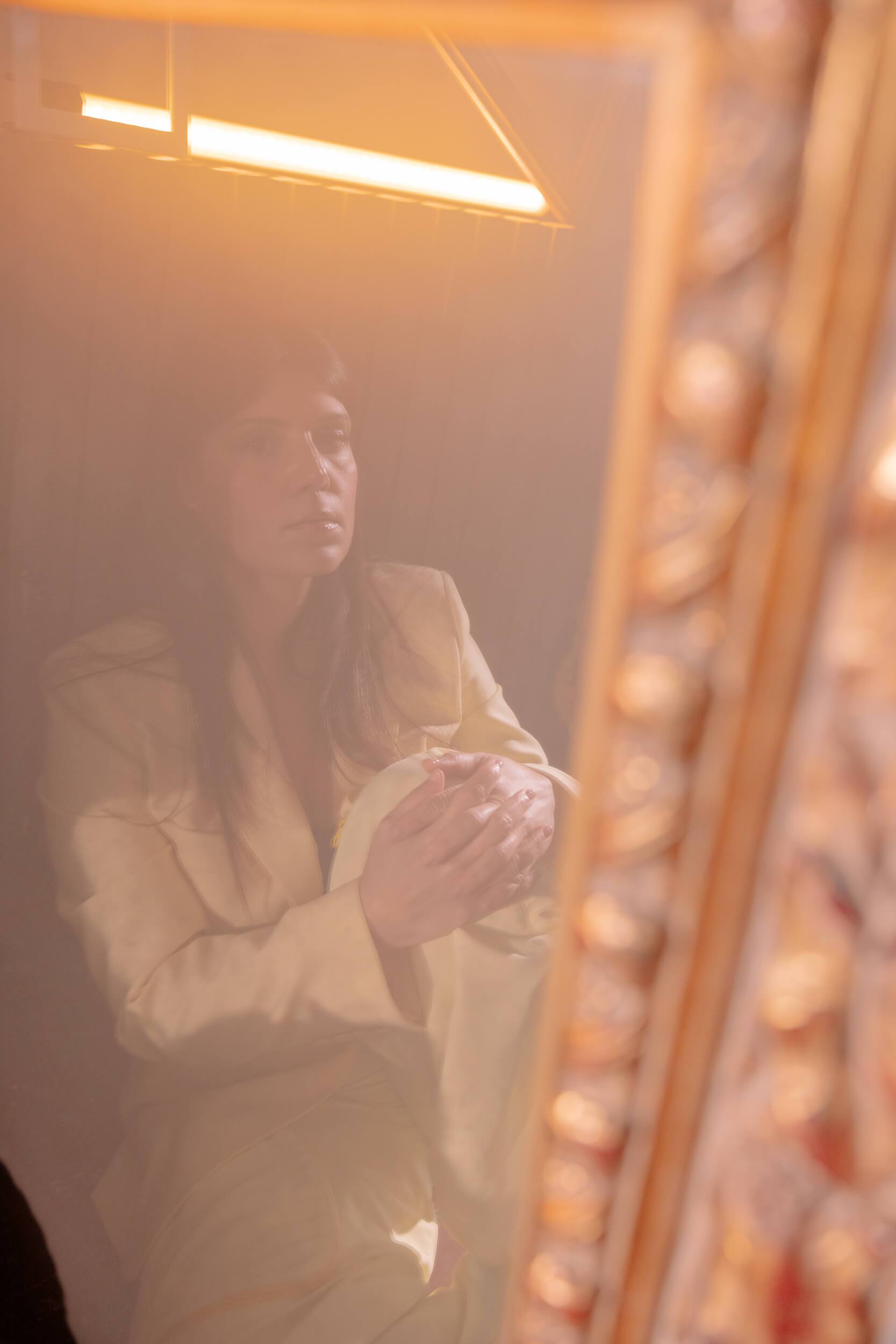
My boyfriend has never told me anything like that, anyway [laughs]…
They don’t teach them that kind of stuff! They only teach them to say “nice ass” and “nice boobs,” so there we are, thinking that our asses and boobs are the only means for us to be accepted by men. Can you believe that? Do you think that men are able to speak that way? No, because they’ve never needed to. I dare you to go to a man and say to him, “You’re bright,” and see how much you startle him, I dare you to tell him, “Your body makes me want to hug you,” he couldn’t handle it! The narration of bodies needs to be reconsidered. In fact, in the creation and acceptance of a fluid space of bodies, we still can’t understand male bodies that look feminine, female bodies that want to look like men’s because if we keep compartmentalizing, thinking things like, “men’s bodies should look like this, women’s bodies should look like this,” where the fuck do we get to?
Try and tell a man that what drives you crazy the most about him is his light, he wouldn’t understand, he wouldn’t know what the fuck you mean! However, I’m sure that this would shake him inside, the warmth of feeling wanted and welcomed because it’s a beautiful thing, but it’s not the same as being told, “Ah, you work out a lot!”. We’re so dumb.
Yes, very much so.
Last question. When do you feel the safest?
In the sea, with my head underwater.
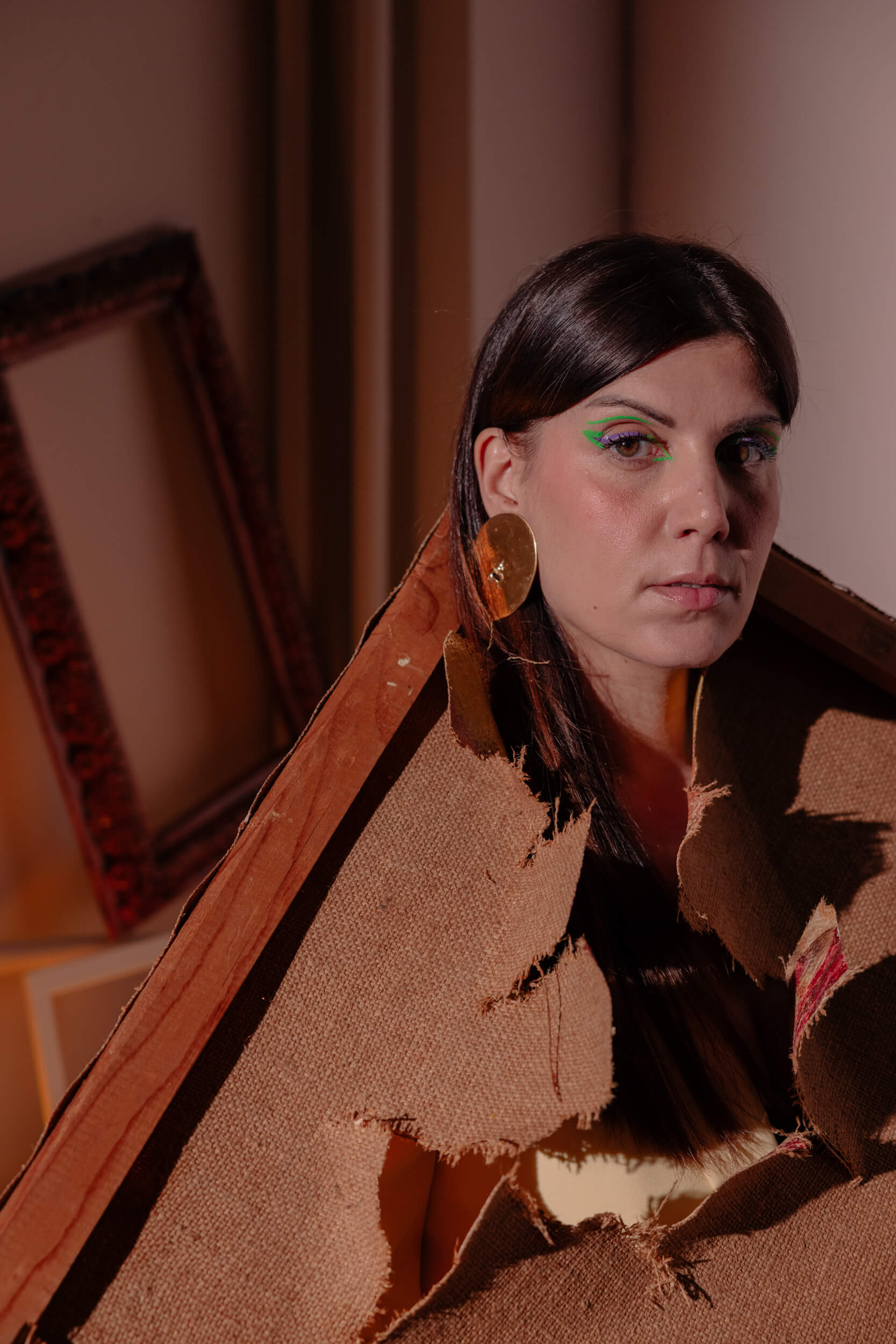
Photos and Video by Johnny Carrano.
Makeup by Vanessa Vastola.
Styling by Sara Castelli Gattinara.
Set Design by Federica Castelli.
Thanks to Other.
Location: Assab One.
LOOK 2
LOOK 4

